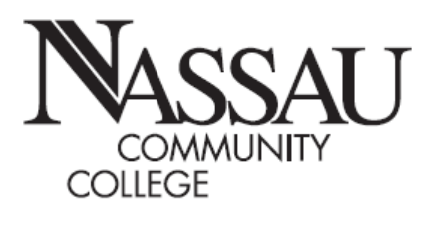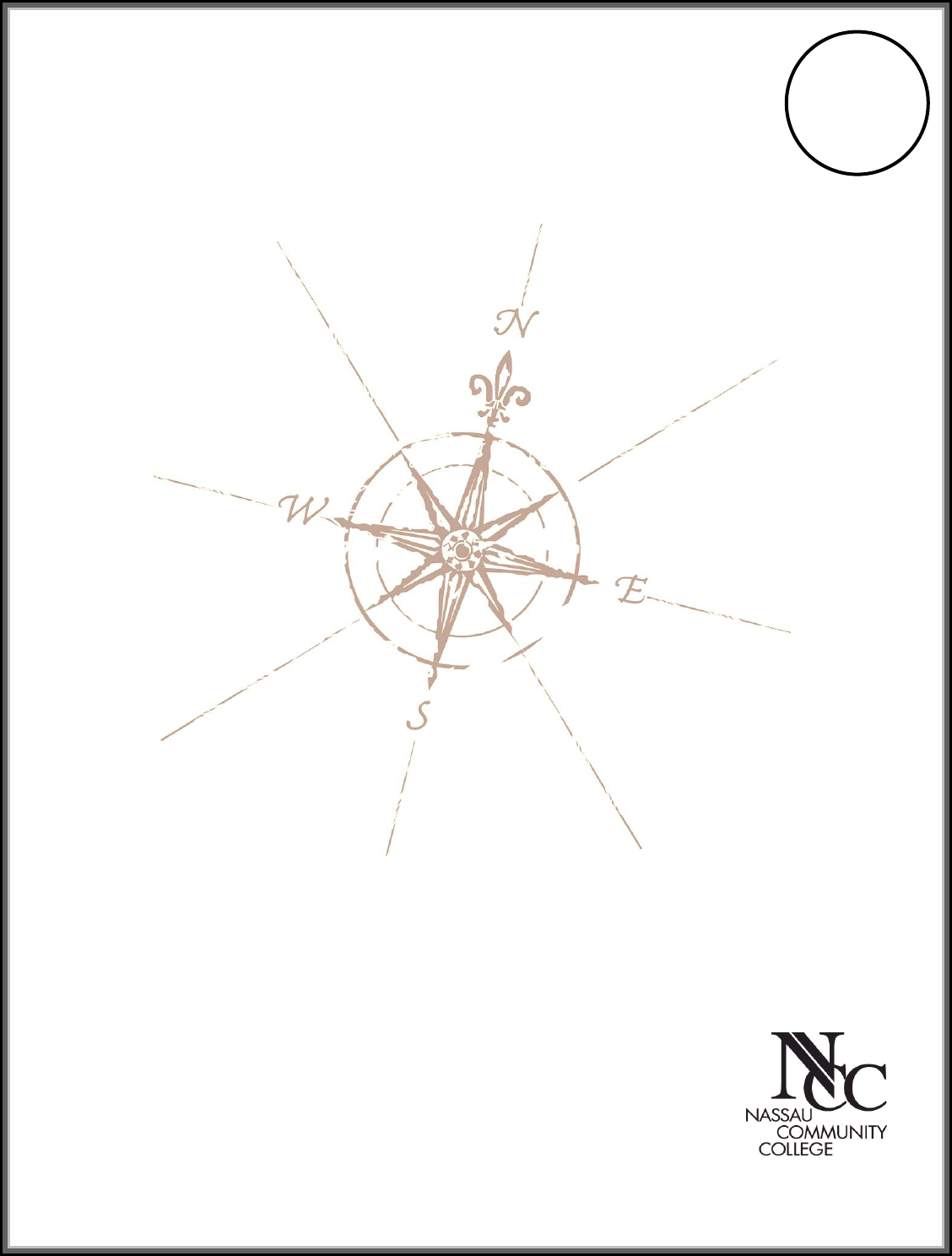
Nassau Community College
*Master Academic Plan
11-15-19
A Publication of the Office of Academic Advisement
MAP* YOUR WAY
TO SUCCESS
A Personalized Educational Plan for the
Liberal Arts Student
enrolled in a 64-credit program
64
CREDITS

PLEASE NOTE:
Information contained in this edition of the MAP
is accurate at the time of publication.
You may find updates on the
Office of Academic Advisement’s web page at:
www.ncc.edu/MasterAcademicPlan
Current information is always
available on the MyNCC Portal.
The Master Academic Plan (MAP)
was conceived and developed by
Nancy Rothbaum, retired Academic Advisor
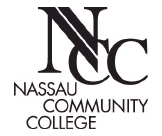
Dear Liberal Arts Student,
Welcome to Nassau Community College!
As a new or transfer student, you probably have many questions about the
requirements for your liberal arts degree. Maybe you’ve been asked by a parent or
friend what you can do with an AA or AS degree in liberal arts. Perhaps you’re not sure
how to answer because you don’t even know what “liberal arts” means or how one of
these programs can help you achieve your long-term goals. It’s possible you think
earning your Associate’s degree in liberal arts will only take two years, not realizing that
this timeline may not be right for you.
These kinds of questions and concerns are often explored through meaningful
conversations with an Academic Advisor. We hope to guide you as you navigate your
path toward a college degree. What better way to assist you than to provide you with a
MAP!
Your Master Academic Plan (MAP) begins right here. We have prepared this
comprehensive guide to familiarize you with what is expected of you, the liberal arts
student at NCC. Your personalized MAP will consider your individual needs, interests
and goals. With the help of an Academic Advisor, you can explore all that NCC has to
offer and figure out the best route to your destination.
Check out the Table of Contents. Get a feel for what’s ahead. It has been said, “A
journey of a thousand miles begins with a single step.” So take the first step and begin
your expedition on page 1. Just follow each compass point, one step at a time.
We look forward to accompanying you on your journey! Time to get going…..
The Professional Faculty of the Office of Academic Advisement
TABLE OF CONTENTS
A Step-by-Step Guide to Creating Your Master Academic Plan (MAP)…………………………….1
General Education at Nassau Community College ............................................................. 3
Academic Advisement and Choosing Courses .................................................................... 7
Academic Advisement for the Liberal Arts............................................................. 8
Choosing Courses: Things to Consider ................................................................... 9
SUNY Seamless Transfer ....................................................................................... 10
Understanding Your Liberal Arts Degree .......................................................................... 12
The Associate in Science Degree (AS) .................................................................. 13
The Associate in Arts Degree (AA) ....................................................................... 14
Course Lists by Attribute ................................................................................................... 16
Subject Abbreviations ........................................................................................... 17
Attribute: Communication Arts ............................................................................ 18
Attribute: Fine and Performing Arts ..................................................................... 18
Attribute: Global Awareness and Non-Western Cultures .................................... 19
Attribute: Humanities ........................................................................................... 19
Attribute: Lab Science ........................................................................................... 22
Attribute: Literature .............................................................................................. 23
Attribute: Mathematics ........................................................................................ 23
Attribute: Non-Lab Science ................................................................................... 23
Attribute: Physical Education ................................................................................ 24
Attribute: Pluralism and Diversity ......................................................................... 24
Attribute: Social and Behavioral Science .............................................................. 25
Attribute: Western Heritage ................................................................................. 26
Electives ................................................................................................................ 27
Choosing a Realistic Timeline for Achieving Your Goal .................................................... 28
Degree Tracker and MAP .................................................................................................. 30
AS Degree Tracker ................................................................................................. 31
Your Master Academic Plan (MAP) – AS Degree .................................................. 32
AA Degree Tracker ................................................................................................ 33
Your Master Academic Plan (MAP) – AA Degree .................................................. 34
Appendices
I – Glossary of Terms ............................................................................................ 38
II – MyNCC Portal Helpful Hints ............................................................................ 43
III – Developmental Requirements and Restrictions ............................................ 47
IV – Directory of Campus Resources ..................................................................... 49
V – Campus Map ................................................................................................... 52

This page intentionally left blank
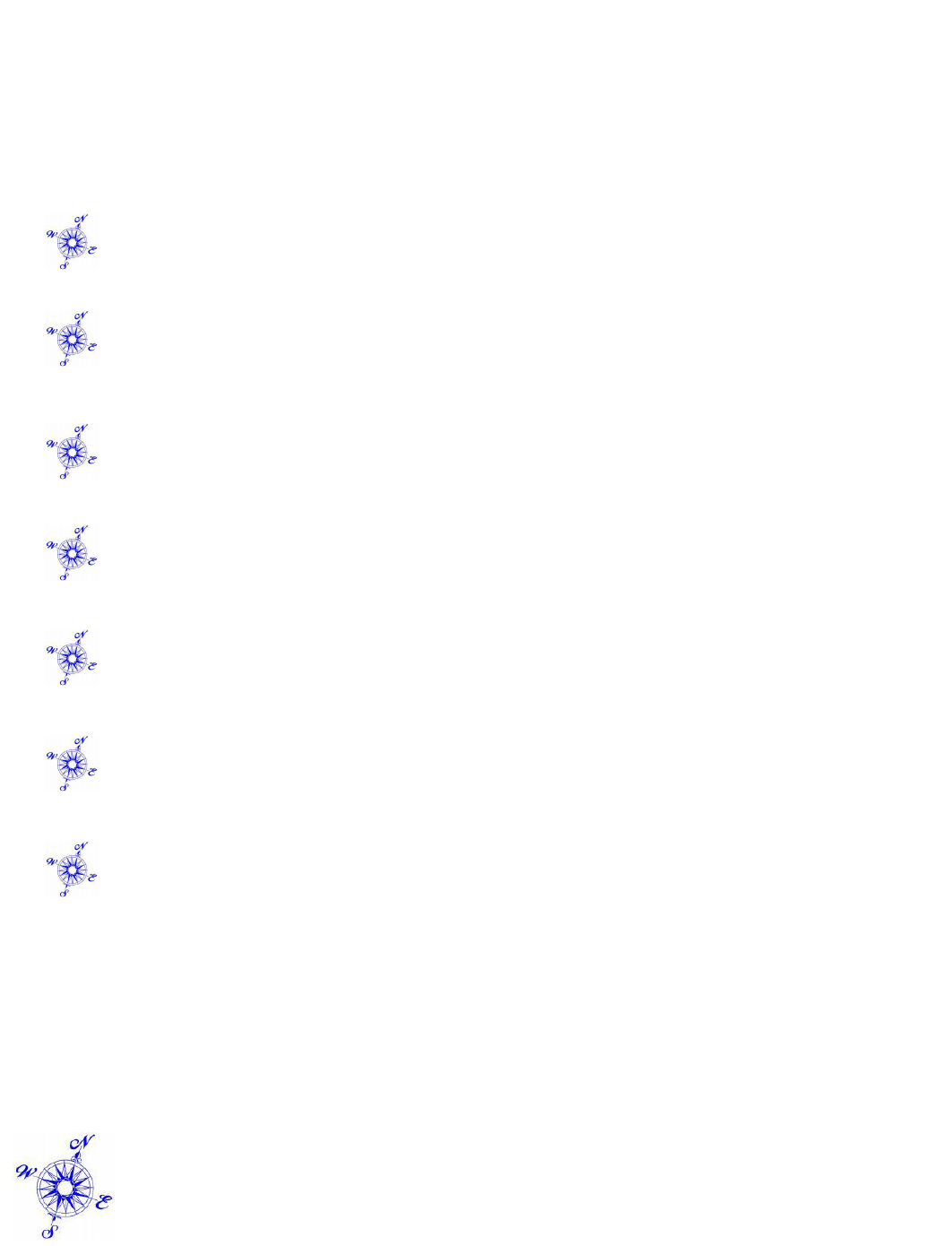
A STEP-BY-STEP GUIDE TO
CREATING YOUR Master Academic Plan (MAP)
Step 1: General Education at Nassau Community College – page 3
Step 2: Academic Advisement and Choosing Courses – page 7
Step 3: Understanding Your Liberal Arts Degree – page 12
Step 4: Course Lists by Attribute – page 16
Step 5: Choosing a Realistic Timeline for Achieving Your Goal – page 28
Step 6: Degree Tracker and Master Academic Plan (MAP) – page 30
Appendices
Appendix I: Glossary of Terms – page 38
Appendix II: MyNCC Portal Helpful Hints – page 43
Appendix III: Developmental Requirements and Restrictions – page 47
Appendix IV: Directory of Campus Resources – page 49
Appendix V: Campus Map – page 52
GO TO STEP 1 ON PAGE 3 TO START
1

This page intentionally left blank
2

General Education at NCC is a set of specified categories of courses that contribute to your
development as an educated person who:
▪ Thinks clearly
▪ Communicates effectively
▪ Makes informed and thoughtful judgments
▪ Distinguishes among sets of values
▪ Displays an appreciation for learning
▪ Applies knowledge to the understanding of the human experience
As a liberal arts student, your required distribution of courses will enable you to:
▪ Read and listen effectively
▪ Speak and write clearly and persuasively
▪ Think critically and creatively
▪ Understand scientific methodology, reason quantitatively and function in a technological
environment
▪ Develop personal, social and aesthetic values through an understanding of culture, nature, self
and society
▪ Develop an understanding of and appreciation for behaviors that promote the good health of
body and mind
▪ Develop literacy and appreciation in the visual and performing arts
The selection of General Education courses depends on the curriculum requirements of your liberal
arts AA or AS degree.
Read more about these General Education categories on the following pages.
CREATING YOUR MAP: STEP 1
General Education at
Nassau Community College
3

NCC’S GENERAL EDUCATION CATEGORIES
COMMUNICATION ARTS:
Communication Arts courses teach oral communication skills necessary to participate effectively in
public and academic debates and discussions, prepare and present researched material, formulate
valid arguments and engage in successful interpersonal interactions in academic, social and
professional realms.
Courses that meet the Communications Arts requirement are listed on page 18.
CULTURE AND DIVERSITY:
This includes three subcategories: Global Awareness and Non-Western Cultures, Pluralism and
Diversity and Western Heritage.
GLOBAL AWARENESS AND NON-WESTERN CULTURES:
Courses in Global Awareness and Non-Western Cultures examine and foster an appreciation
of cultural traditions other than European and North American. They enhance the
recognition of the diversity and similarities of the ways in which people with different cultural
traditions perceive and experience their lives.
Course options are listed on page 19.
PLURALISM AND DIVERSITY:
Courses in Pluralism and Diversity expand understanding of the various influences that shape
perspectives, values and identities. They explore social divisions such as gender, ethnicity and
racial formations in a pluralistic nation and world.
Course options are listed on page 24.
WESTERN HERITAGE:
Western Heritage courses reflect the distinctive characteristics of western heritage presented
in a broad context. They acquaint you with the evolution of western culture and values and
relate them to other regions and cultures.
Course options are listed on page 26.
ENGLISH COMPOSITION:
English Composition courses are designed to give you a critical awareness of written language. They
enable you to produce clear, well-developed, well-organized, grammatical writing and to interpret and
analyze texts of various genres.
All liberal arts students must complete ENG 100 or 101 (depending on placement results) and ENG 102
or 103 (depending on preference); students enrolled in the Honors Program may complete ENG 108
and ENG 109.
4

FINE AND PERFORMING ARTS:
Courses in Fine and Performing Arts develop aesthetic awareness by introducing you to the processes
by which artists create, perform and/or evaluate works of art. They foster self-expression,
understanding and an appreciation of the arts within a historical, cultural, theoretical and critical
context.
Courses that meet the Fine and Performing Arts requirement are listed on page 18.
HUMANITIES:
Humanities courses teach you to analyze and interpret texts, ideas, discourse systems and the human
values, traditions and beliefs they reflect.
Courses that meet the Humanities requirement are listed on pages 19-21.
LITERATURE:
Literature courses focus on the study of written works that embody the creative use of language for
artistic or stylistic purposes. They express ideas of permanent or universal significance.
Courses that meet the Literature requirement are listed on page 23.
MATHEMATICS:
Courses that satisfy this requirement use mathematical or computer science models which employ
numerical, verbal, graphical and analytical tools to strengthen quantitative skills and logical reasoning
and enable you to address other disciplines.
The math courses that meet your degree requirements differ, depending on whether you are
completing the AS or AA degree in liberal arts:
• AS students must select from a specific group of math courses, listed in the degree overview on
page 13.
• AA students can review their math options on page 23.
PHYSICAL EDUCATION:
Physical Education courses develop cardiovascular and neuromuscular skill, strength, endurance,
flexibility and fitness. They emphasize improved overall conditioning as well as skills in team, individual
and leisure activities.
Note: Full-time, day students (enrolled in 12 or more credits/credit equivalents in courses beginning
5 pm or earlier) must complete ½ credit of physical education activities for each fall or spring term, to a
maximum of two credits.
The following students are exempt from this requirement:
▪ Veterans
▪ Students over 25 years of age at first date of attendance
▪ Students over 30 years of age at date of graduation
Courses that meet the physical education requirement are listed on page 24.
5

SCIENCES:
Science courses explore how phenomena are observed, understood and theoretically synthesized
through the study and application of the scientific method. They provide you with an understanding of
scientific terms, concepts and theories, as well as the ability to test hypotheses in the laboratory.
Science study helps you develop the scientific literacy necessary to understand an increasingly complex
world.
The science courses that meet your degree requirements differ, depending on whether you are
completing the AS or AA degree in liberal arts:
• AS students must select from a specific group of science courses, listed in the degree overview
on page 13.
• AA students can review lab science course options on page 22 and non-lab science course
options on page 23.
SOCIAL AND BEHAVIORAL SCIENCES:
Social Science courses investigate behavior in social contexts through analysis of the characteristics and
structure of individuals, families, groups and institutions. They provide an understanding of the
concepts, methods and models that social scientists use to explore social phenomena. History courses
explore institutions and developments that have shaped human experience while providing familiarity
with the historic narrative.
Courses that meet the Social and Behavioral Science requirement are listed on page 25.
Go to STEP 2 on page 7
6

The following pages will help you understand the role of Academic Advisement and the course
selection process in creating your Master Academic Plan (MAP).
CREATING YOUR MAP: STEP 2
Academic Advisement and
Choosing Courses
7

ACADEMIC ADVISEMENT FOR THE LIBERAL ARTS
The Office of Academic Advisement
The Office of Academic Advisement is located in the Student Services Center, Tower, Lower Level. A staff
of full- and part-time professional faculty advisors, as well as part-time classroom faculty advisors, is
available to assist you in the development of meaningful educational plans that are compatible with your
goals. No appointment is necessary. For advisement hours and helpful information, click on Academic
Advisement in the LaunchPad of the MyNCC Portal.
Advisement at Other Locations
As a liberal arts student, you may also visit faculty in any liberal arts academic department during their
office hours. While you are not assigned a specific faculty advisor, the following Academic Departments
serve as the designated advisors for liberal arts students: Africana Studies, Biology, Chemistry,
Economics/Finance, English, Foreign Languages, History/Geography/Political Science, Math, Philosophy,
Physical Sciences, Psychology, Reading, and Sociology. Consult the MyNCC Portal for locations and phone
numbers.
Liberal Arts students with two or more required remedial courses and students who are on “Academic
Warning,” (limited to 14 credits due to low GPA), must seek advisement in Student Personnel Services,
Nassau Hall, Building M, room 11, 516-572-7506.
Students who are on “Academic Probation,” (limited to 11.5 credits due to low GPA), are advised in the
Center for Educational and Retention Counseling in Nassau Hall, Building M, room 19, 516-572-7141.
8
Academic advisement is a collaborative process in
which you and an advisor work together to develop
your academic plan. The advisor’s role is to help you
understand your degree requirements and how to
select courses with the proper attributes for fulfilling
those requirements. This is done with consideration for
your interests, abilities and career goals. The advisor
will help you develop strategies for academic success
and can provide referrals to other useful resources on
campus. An advisor can also help you understand NCC’s
academic policies.
Academic advisement encourages you to become self-reliant and make appropriate decisions that
maximize your educational experience. While advisors are responsible for knowing the College’s
graduation requirements in liberal arts, you are ultimately responsible for selecting the courses you
need to graduate.

CHOOSING COURSES: THINGS TO CONSIDER
Choosing courses is an important skill for the liberal arts
student. In most cases, you will select from many different
options to complete your degree requirements. But, to meet
a specific degree requirement, you must choose a course with
the associated attribute type. (See STEP 4, page 16.)
Here are some questions to think about when choosing courses:
• Do I need to complete any developmental courses? It is a condition of your acceptance that
required developmental courses (based on placement testing) must be completed in sequence.
(see Appendix III, page 47, for more information).
• Have I read the course description? Does the course sound interesting to me?
• Have I satisfied the prerequisites for the course? Prerequisites are courses that must be completed
before taking another course.
• Am I qualified to take any co-requisites that may be required? Co-requisites are courses that must
be taken at the same time.
• Have I selected a course with the required attribute type?
• Will the course provide me with skills for the work force and have relevance to my career goals?
• Is the course transferable to the college and/or program I plan to pursue? (See SUNY Seamless
Transfer, page 10.)
• If I am trying to improve my grade point average (GPA), am I taking the appropriate courses?
➢ Should I repeat courses? (Only the most recent grade counts in the overall GPA.)
➢ Should I take fewer courses so I have more time to focus on each one?
➢ Am I taking any courses that require more work than I can realistically devote time to?
➢ Do I have the skills needed to perform well in the courses I am considering?
• What should I consider when scheduling my classes?
➢ How many classes can I reasonably handle in one day?
➢ Should I schedule breaks between classes?
➢ Can I realistically get to class on time?
➢ Will my work schedule, if applicable, interfere with my classes?
➢ Will I have enough time for homework, library research and studying?
➢ Are online courses appropriate for me?
Distance Education
Distance Education offers fully online and hybrid courses. Fully online courses are conducted entirely
through the web, although students are sometimes required to take proctored midterm and final
examinations. Hybrid courses combine face-to-face classroom instruction with online learning. Courses
offered through Distance Education are NOT easier than courses provided through face-to-face instruction.
Students need to be motivated and self-disciplined; they may be required to submit assignments,
participate in threaded discussions and complete examinations by designated deadlines.
9

SUNY SEAMLESS TRANSFER
If you intend to transfer to a SUNY school to earn a Bachelor’s degree, you can plan for a seamless transfer to enter
the four-year college on track for completing your degree in just two more years.
To do so, you must complete the SUNY General Education Requirements (SUNY GER) while earning your Associate’s
Degree in liberal arts. In addition, you should complete the lower-level requirements for your intended major (if you
have selected one) by following the appropriate SUNY Transfer Path.
SUNY General Education Requirements (SUNY GER)
To earn a Bachelor’s Degree at a SUNY school, you must complete ten courses (30 credits) from at least seven of the
ten SUNY GER categories listed below as part of your four-year degree. While earning your Associate’s Degree at
NCC, you should complete at least seven of the ten required courses; completing all ten (30 credits) is preferable.
Selecting courses that meet both NCC liberal arts and SUNY GER requirements will keep you on track for a seamless
transfer. The Degree Evaluation tool in your MyNCC Portal tracks completion of SUNY GER courses (see page 46.)
▪ SUNY GER Basic Communication (GBCM) - required ▪ SUNY GER Math (GMAT) - required
▪ SUNY GER The Arts (GART)
▪ SUNY GER Humanities (GHUM)
▪ SUNY GER Natural Sciences (GLAB)
▪ SUNY GER Foreign Language (GFOL)
▪ SUNY GER Social Sciences (GSBS)
▪ SUNY GER American History (GAMH)
▪ SUNY GER Western Civilization (GWEH)
▪ SUNY GER Other World Civilization (GOWC)
Abbreviations in parentheses are found in NCC course descriptions.
SUNY Transfer Paths
If you have selected a major for your Bachelor's Degree at a SUNY school, you should complete the lower-level
requirements for that major while earning your Associate's Degree at NCC.
To determine which courses should be completed, you must utilize the appropriate SUNY Transfer Path. Visit the
SUNY webpage at www.suny.edu:
➢ Click on Admissions and select Transfer from the drop-down menu
➢ Click on SUNY Transfer Paths
➢ Select the major/discipline you plan to pursue and view the list of lower-division major requirements you
should try to complete as part of your Associate’s Degree
➢ Click on Planning Your Coursework and follow the prompts to determine the NCC course equivalents
recommended for your Transfer Path
When you meet with an advisor at NCC, mention your plans for a seamless transfer to a SUNY school. If you are
unsure about your future plans, the Associate’s Degree in Liberal Arts will expose you to a variety of disciplines
which may help you select an appropriate major.
Go to STEP 3 on page 12
10

11
This page intentionally left blank
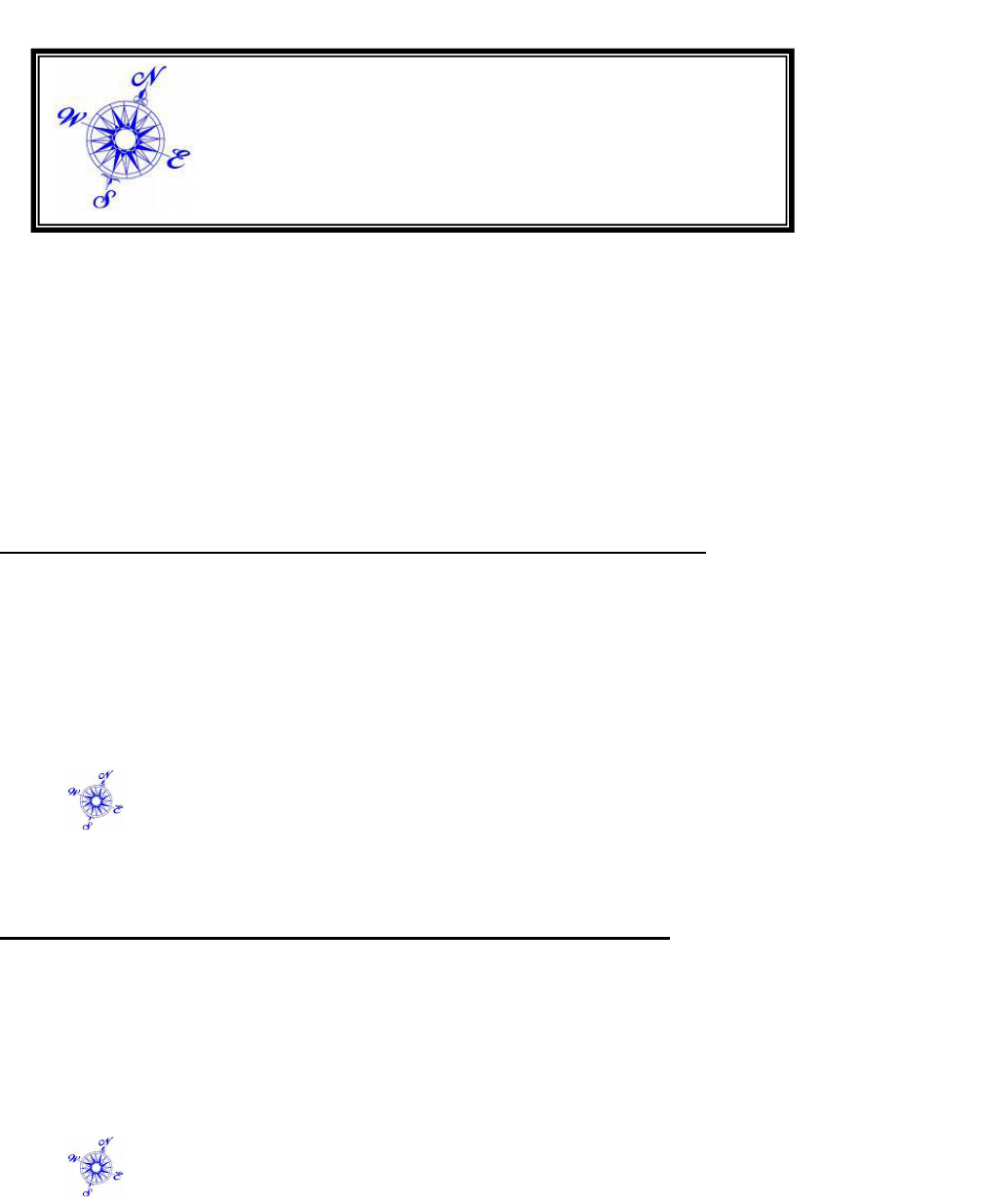
The liberal arts degrees are designed to help you build a strong foundation in English,
humanities, social sciences, mathematics and natural sciences and provide you with
exposure to a variety of academic disciplines and courses. The liberal arts degrees afford
the undecided student an excellent opportunity to explore possible majors in
preparation for transferring to a four-year college.
THE LIBERAL ARTS ASSOCIATE IN SCIENCE DEGREE (AS)
The Associate in Science (AS) degree program emphasizes mathematics and science.
A minimum of 30 credits of math and science is required for this degree. The required
courses are designed for transfer to upper-division programs emphasizing math and
science such as biology, physics, chemistry, mathematics or pre-professional sequences
such as pre-med, pre-dental and pre-pharmacy.
For AS degree requirements, turn to page 13
THE LIBERAL ARTS ASSOCIATE IN ARTS DEGREE (AA)
The Associate in Arts (AA) degree program emphasizes the humanities and social
sciences and prepares students for transfer to upper-division study in subject areas such
as economics, English, foreign languages, history, philosophy, psychology and sociology,
among others. This major may also be appropriate for students completing
prerequisites needed to enter many allied health fields and nursing.
For AA degree requirements, turn to page 14
CREATING YOUR MAP: STEP 3
Understanding Your Liberal Arts Degree
12
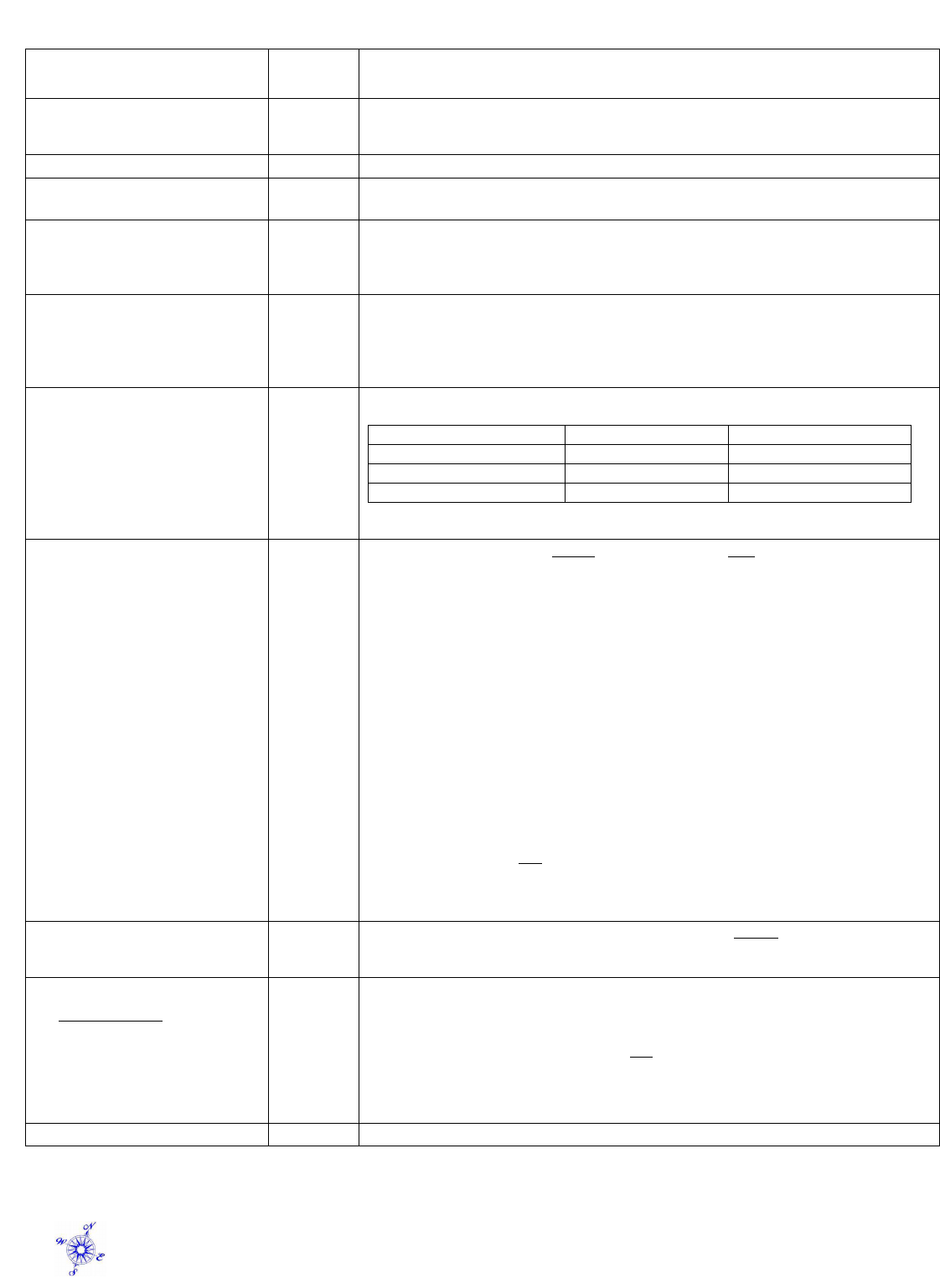
THE LIBERAL ARTS ASSOCIATE IN SCIENCE DEGREE (AS)
Go to STEP 4 on page 16 for information on selecting courses to meet each of your requirements
COURSE REQUIREMENTS
MINIMUM
CREDITS
REQUIRED
COMMENTS
ENGLISH COMPOSITION
6
▪ ENG 100 or 101 (depending on placement) and ENG 102 or 103 (depending on
preference) are required courses
▪ Eligible students may take Honors ENG 108 and 109 instead
HUMANITIES ATTRIBUTE
6
▪ HUMANITIES course options are listed on pages 19-21
SOCIAL AND BEHAVIORAL
SCIENCE ATTRIBUTE
6
▪ SOCIAL AND BEHAVIORAL SCIENCE course options are listed on page 25
MATHEMATICS
8
▪ Complete one of the following sequences, based on placement results on Advanced
Algebra & Functions test (AAF) or completion of the appropriate pre-requisite course:
➢ MAT 122 and 123
➢ MAT 111 and 122 or MAT 117 and 122
SCIENCE SEQUENCE
8
▪ Complete one of the following sequences:
➢ AHS 131-132
➢ BIO 109-110
➢ CHE 151-152
➢ PHY 101-102 or PHY 122-123 or PHY 151-152
SCIENCE/MATHEMATICS
ELECTIVES
14
▪ Complete additional courses from any of the math and science courses listed above
and/or below (EXCEPT MAT 111 or 117):
AST 101, 102
ENV 101, 102, 103, 104
SCI 200
BIO 200 and higher
GLY 101, 102, 104
MAT 131
CHE 201 and higher
MET 101
MAT 200 and higher
CLI 101
PHY 200 and higher
CSC 120
▪ If more than 14 credits are completed, the additional credits will be applied to the
ELECTIVES area below
OTHER LIBERAL ARTS
Fine and Performing Arts Attribute*
Literature Attribute
Communication Arts Attribute
Global Awareness and Non-Western
Cultures Attribute
Pluralism and Diversity Attribute
Western Heritage Attribute
*Note: One- and/or two-credit courses
may be combined to total 3
credits of FINE AND PERFORMING
ARTS
12
▪ Complete a minimum of twelve credits, with at least four different attribute types, to
satisfy this area. If more than 12 credits are completed, the additional credits will be
applied to the ELECTIVES area below
▪ FINE AND PERFORMING ARTS course options are listed on page 18
▪ LITERATURE course options are listed on page 23
▪ COMMUNICATION ARTS course options are listed on page 18
▪ GLOBAL AWARENESS AND NON-WESTERN CULTURES course options are listed on
page 19
▪ PLURALISM AND DIVERSITY course options are listed on page 24
▪ WESTERN HERITAGE course options are listed on page 26
▪ No course may be used to satisfy more than one attribute category in the OTHER
LIBERAL ARTS area. However, a course may satisfy a requirement in the OTHER
LIBERAL ARTS area and another requirement above, if it has both attributes.
Although the course may satisfy two requirements (i.e. “double-counts”), it only
earns credit once. This credit deficit must be made up with additional ELECTIVE
credit. See COMMENTS in ELECTIVES area below
PHYSICAL EDUCATION
2
▪ Any combination of 0.5-credit and/or 1-credit physical activity classes may be used to
fulfill this requirement (see page 5 for more info)
▪ PHYSICAL EDUCATION options are listed on page 24
ELECTIVES
IMPORTANT NOTE:
▪ Any credit-level course can be
used as an elective
▪ Certain courses can ONLY be
used as electives - see
page 28
2 - 14
▪ Credits earned above the minimum in any of the above requirement areas count as
elective credits
▪ At least 2 ELECTIVE credits are required. However, choosing courses that satisfy both
an OTHER LIBERAL ARTS requirement and another requirement will necessitate taking
5, 8, 11 or 14 elective credits, depending on how many courses “double-count”
▪ If pre-requisites are needed before taking required Math/Science courses, they count
as electives. Ex. MAT 109, CHE 107
TOTAL CREDITS REQUIRED
64
NOTE: AT LEAST 33 OF THE 64 CREDITS MUST BE EARNED AT NCC
13
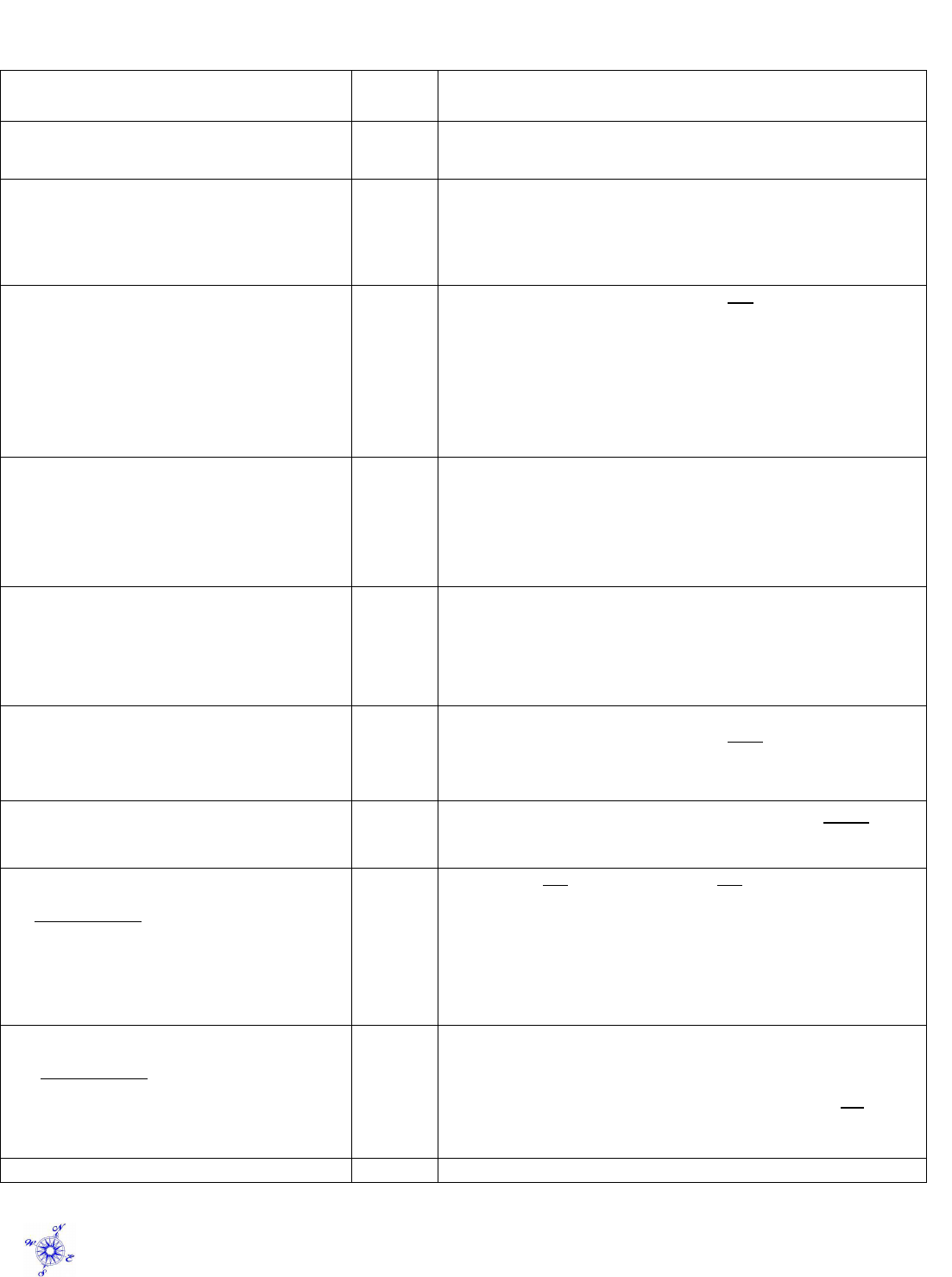
THE LIBERAL ARTS ASSOCIATE IN ARTS DEGREE (AA)
Go to STEP 4 on page 16 for information on selecting courses to meet each of your requirements
COURSE REQUIREMENTS
MINIMUM
CREDITS
REQUIRED
COMMENTS
ENGLISH COMPOSITION
6
▪ ENG 100 or 101 (depending on placement) and ENG 102 or 103
(depending on preference) are required courses
▪ Eligible students may take Honors ENG 108 and 109 instead
LANGUAGE ARTS
Literature (3 cr)
Communication Arts (3 cr)
6
▪ LITERATURE course options are listed on page 23
▪ COMMUNICATION ARTS course options are listed on page 18
HUMANITIES
9
▪ Courses must be selected from at least two different HUMANITIES
departments
▪ You may take no more than 3 credits in English and no more than
3 credits in Communications to satisfy this area
▪ At least 3 credits must have a FINE AND PERFORMING ARTS
attribute type; course options are listed on page 18
▪ HUMANITIES course options are listed on pages 19-21
▪ Note: One- and/or two-credit courses may be combined to total
3 credits of HUMANITIES or FINE AND PERFORMING ARTS
SCIENCE
Lab Science (4 cr)
Lab Science (4 cr) OR
Non-Lab Science (3 cr)
7
▪ If two Lab Sciences (8 credits) are completed, 7 credits will be applied
to SCIENCE and 1 credit will be applied to the ELECTIVES area below
▪ Lab Science course options are listed on page 22
▪ Non-Lab Science course options are listed on page 23
MATHEMATICS
Math (3-4 cr)
Math (3-4 cr) OR
Computer Science (3-4 cr)
6
▪ If more than 6 credits are completed in this area, the additional 1 or
2 credits will be applied to the ELECTIVES category below
▪ Math course options are listed on page 23
▪ Only ONE course may be in Computer Science; it must be selected
from CSC 104, 120 or 130 ONLY
SOCIAL AND BEHAVIORAL SCIENCE
12
▪ At least one course must be in history
▪ Courses must be selected from at least three different social science
departments
▪ SOCIAL AND BEHAVIORAL SCIENCE course options are listed on
page 25
PHYSICAL EDUCATION
2
▪ Any combination of 0.5-credit and/or 1-credit physical activity classes
may be used to fulfill this requirement (see page 5 for more info)
▪ PHYSICAL EDUCATION options are listed on page 24
CULTURE AND DIVERSITY
IMPORTANT NOTE: A course that satisfies this
requirement may also satisfy another requirement
above, if it has both attributes. Although the course
may satisfy two requirements (i.e. “double-counts”), it
only earns credit once. This credit deficit must be
made up with additional elective credit (see
COMMENTS in ELECTIVES area below).
6
▪ Complete two different courses with two different attributes from
the choices below:
➢ Global Awareness and Non-Western Cultures (GLNW) Attribute
course options are listed on page 19
➢ Pluralism and Diversity (PLDI) Attribute course options are
listed on page 24
➢ Western Heritage (WESH) Attribute course options are
listed on page 26
ELECTIVES
IMPORTANT NOTE:
▪ Any credit-level course can be used as an
elective
▪ Certain courses can ONLY be used as electives -
see page 27
10 - 16
▪ Credits earned above the minimum in any of the above requirement
areas count as ELECTIVE credits
▪ At least 10 ELECTIVE credits are required. However, choosing courses
that satisfy both a CULTURE AND DIVERSITY requirement and
another requirement will necessitate taking 13 or 16 credits,
depending on how many courses “double-count”
TOTAL CREDITS REQUIRED
64
NOTE: AT LEAST 33 OF THE 64 CREDITS MUST BE EARNED AT NCC
14

This page intentionally left blank
15

When creating your Master Academic Plan (MAP), you must choose courses that fulfill the
requirements of your degree program. For any course to fulfill a specific degree requirement, it
must have the associated attribute (ex. to fulfill the Literature requirement for your degree, you
must choose a course that has a “Literature” attribute).
On the following pages, you will find the courses which fulfill specific requirements listed by their
corresponding attributes. You should:
➢ Circle the titles of several courses that may interest you from each category
➢ Get more detailed information about each course, including pre- and co-requisites by
logging into the MyNCC Portal:
• Click on College Catalog
▪ Click on Course Descriptions in the blue box to use Course Search feature
OR
▪ Click on Course Descriptions Only to view descriptions in PDF format
OR
• Click on Registration Information on the LAUNCHPAD
▪ Click on Look Up Classes or Add or Drop Classes
❖ Highlight the appropriate term and click Submit
❖ Click Advanced Search
❖ Search for your courses of interest
❖ See Appendix II, page 43, for information about viewing the
catalog entry for a course
OR
• Click on Schedule Builder on the LAUNCHPAD
▪ Select the appropriate semester
▪ Click +Add Course
▪ Select the Subject of interest
▪ Select the Course of interest and the course description will appear
Important Notes:
• Not every course listed on the following pages will be available every term.
• A course will appear on multiple lists if it has multiple attributes.
• Although the course lists are accurate on the date of publication, changes can occur;
consult the MyNCC Portal for the most up-to-date course attribute
information.
CREATING YOUR MAP: STEP 4
Course Lists by Attribute
16
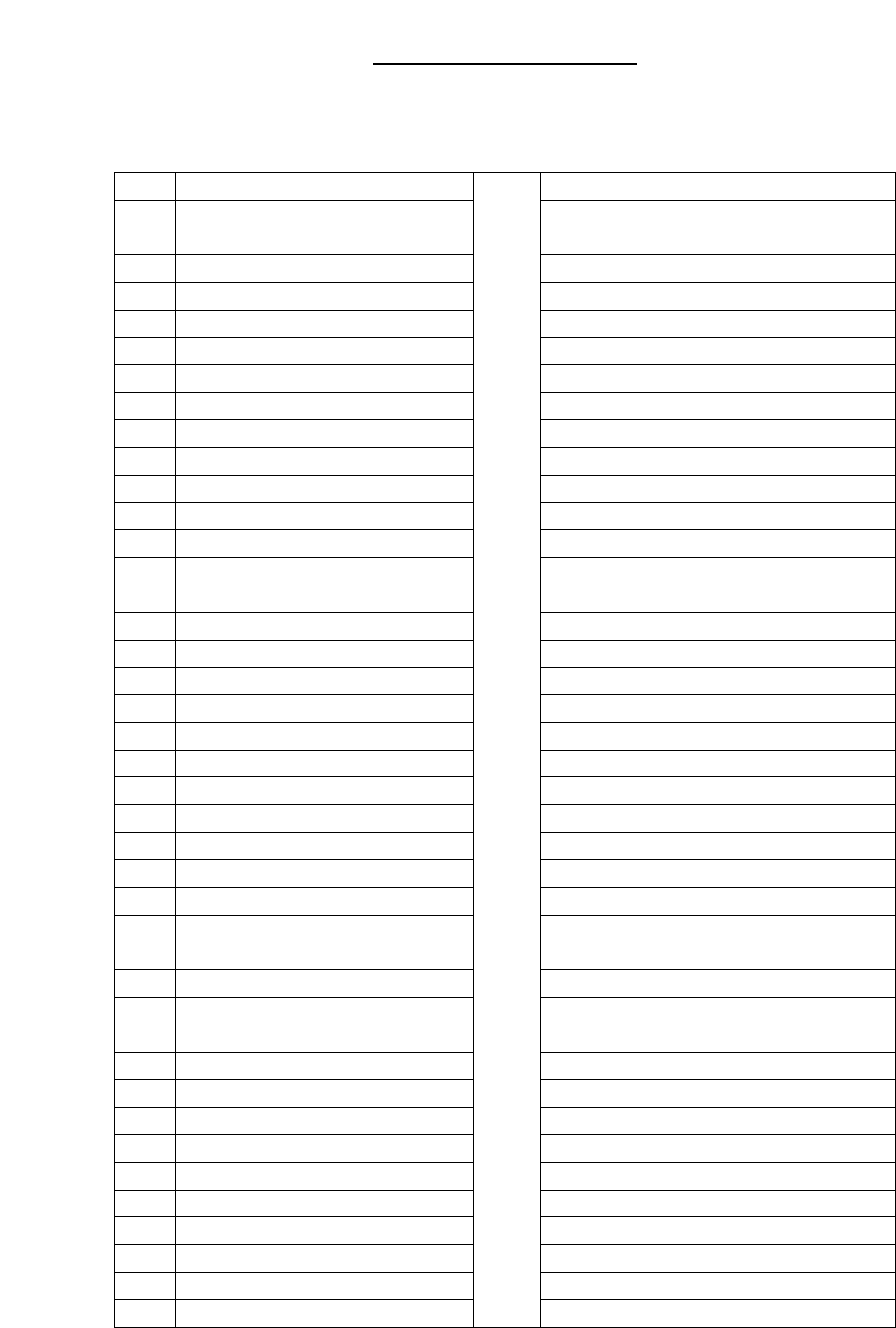
SUBJECT ABBREVIATIONS
On the following pages, you will find lists of courses with specific attribute types. Refer
to the chart below to determine the subject area (as displayed in the portal) for each
course on the list.
ABT
Administrative Business Tech
HIS
History
ACC
Accounting
HIT
Health Information Technology
AFR
Africana Studies
HMS
Human Services
AHS
Allied Health Sciences
HRS
Human Rights Studies
ANT
Anthropology
HTL
Hospitality Business
ARA
Arabic
IGS
Interdisciplinary Global Studies
ART
Art
INT
Interior Design
ASL
American Sign Language
ITA
Italian
AST
Astronomy
ITE
Information Technology
BIO
Biology
JPN
Japanese
BUS
Business
JWS
Jewish Studies
CET
Civil Engineering Technology
KOR
Korean
CHE
Chemistry
LAS
Latin American Studies
CHI
Chinese
LAT
Latin
CLI
Climatology
LAW
Legal Studies
CMA
Medical Assistant
LIB
Library
CMP
Computer Processing
MAT
Mathematics
COM
Communications
MDC
Multidisciplinary Courses
CRJ
Criminal Justice
MDS
Multidisciplinary Lab Science
CRT
Computer Repair Technology
MET
Meteorology
CSC
Computer Science
MKT
Marketing
CUL
Culinary Arts
MUS
Music
DAN
Dance
MUT
Music Technology
ECO
Economics
NCC
NCC College Experience
EDU
Education
NTR
Nutrition
ELT
Electrical Engineering Tech
PED
Physical Education
ENG
English
PHI
Philosophy
ENS
Engineering Science
PHY
Physics
ENV
Environmental Science
POL
Political Science
FBM
Fashion/Buying/Merchandising
POR
Portuguese
FIN
Finance
PSA
Security Administration
FRE
French
PSY
Psychology
FRS
Fire Science
RDG
Reading
FSD
Fashion Design
RET
Retailing
GEO
Geography
RUS
Russian
GER
German
SCI
Physical Sciences
GLY
Geology
SOC
Sociology
GSD
Green Sustainable Design
SPA
Spanish
GSS
General Science Studies
SPS
Student Personnel Services
HCA
Healthcare Administration
TCT
Tele Communications Tech
HEB
Hebrew
THR
Theatre
HED
Health Education
WST
Women's Studies
17

COURSE LISTS BY ATTRIBUTE
Note: Course lists are accurate on the date of publication, but changes can occur; consult the MyNCC Portal for the
most up-to-date course attribute information. Not every course is available every term. A course will appear on
multiple lists if it has multiple attributes. Abbreviations in parentheses are the attribute codes seen in the Degree
Evaluation or course descriptions.
ATTRIBUTE: COMMUNICATION ARTS (COM)
COURSE
CREDITS
COURSE
CREDITS
COM 101 - Interpersonal Communications
3
COM 123 - Argumentation & Debate
3
COM 103 - Public Speaking
3
COM 202 - Persuasive Speaking
3
ATTRIBUTE: FINE AND PERFORMING ARTS (FAPA)
COURSE
CREDITS
COURSE
CREDITS
AFR 150 - African American Choral Ensemble
1
MUS 112 - Freshman Chorus II
1
AFR 151 - African American Choral Ensemble
1
MUS 113 - Band I
1
AFR 153 - African American Choral Ensemble
1
MUS 114 - Band II
1
AFR 154 - African American Choral Ensemble
1
MUS 115 - Jazz Ensemble I
1
ART 100 - Introduction to Visual Arts
3
MUS 116 - Jazz Ensemble II
1
ART 105 - Principles of 2-Dimensional Design
3
MUS 123 - Chamber Music I
1
ART 106 - Principles of 3-Dimensional Design
3
Open to all students by audition/Contact Music Dept
ART 108 – Advertising Art
3
MUS 124 - Chamber Music II
1
ART 109 - Printmaking I
3
Open to all students by audition/Contact Music Dept
ART 110 - Printmaking II
3
MUS 125 - Vocal Ensemble I 1
ART 111 - Drawing I
3
Open to all students by audition/Instructor’s permission required
ART 112 - Drawing II
3
MUS 126 - Vocal Ensemble II 1
ART 115 - Painting I
3
Open to all students by audition/Instructor’s permission required
ART 116 - Painting II
3
MUS 129 - African American Choral Ensemble I 1
ART 117 - Illustration
3
MUS 130 - African American Choral Ensemble II
1
ART 122 - Ceramics I
3
MUS 133 - Intermediate Piano 3
ART 123 - Sculpture I
3
MUS 134 - Intermediate Folk Guitar
3
ART 126 - Introduction to Studio Arts
3
MUS 136 - Beginning Voice Class
3
ART 130 - Graphic Design I
3
MUS 187 - Jazz Improvisation Ensemble I
1
ART 140 - Graphic Design II
3
MUS 188 - Jazz Improvisation Ensemble II
1
ART 145 - Raku & Pit-Firing
3
MUS 209 - Orchestra III
1
ART 147 - Potter's Wheel
3
MUS 210 - Orchestra IV
1
ART 159 - Photography I
3
MUS 211 - Chorus III
1
ART 160 - Black & White Darkroom
3
MUS 212 - Chorus IV
1
ART 222 - Ceramics II
3
MUS 213 - Band III
1
ART 223 - Sculpture II
3
MUS 214 - Band IV
1
ART 228 - Documentary Photography
3
MUS 215 - Jazz Ensemble III
1
ART 229 - View Camera
3
MUS 216 - Jazz Ensemble IV
1
COM 107 - Film Production I
3
MUS 223 - Chamber Music III
1
COM 171 - Television Studio Production
3
MUS 224 - Chamber Music IV
1
COM 172 - Video Field Production
3
MUS 225 - Vocal Ensemble III
1
DAN 101 - Dance in the 20th Century
3
MUS 226 - Vocal Ensemble IV
1
DAN 139 - Ballet for Non-Majors
2
MUS 229 - African American Choral Ensemble III
1
ENG 115 - Creative Writing
3
MUS 230 - African American Choral Ensemble IV
1
ENG 116 - Play & Screen Writing
3
MUT 100 - Introduction to Music Technology
3
ENG 117 - Fiction Writing
3
MUT 101 - Introduction to Digital Audio Workstation
3
ENG 118 - Poetry Writing
3
THR 100 - Theatre Appreciation
3
ENG 120 - Creative Nonfiction Writing
3
THR 101 - Introduction to Theatre History I
3
MUS 102 - Beginning Piano
3
THR 103 - Acting I
3
MUS 103 - Beginning Guitar
3
THR 104 - Acting II
3
MUS 109 - Orchestra I
1
THR 107 - Stagecraft
3
MUS 110 - Orchestra II
1
THR 201 - Introduction to Theatre History II
3
MUS 111 - Freshman Chorus I
1
18

ATTRIBUTE: GLOBAL AWARENESS AND NON-WESTERN CULTURES (GLNW)
COURSE
CREDITS
COURSE
CREDITS
AFR 142 - History of African Civilization
3
HIS 219 - Colonial Latin America
3
AFR 143 - History of Contemporary Africa
3
HIS 220 - Modern Latin America
3
AFR 203 - The Afro-Caribbean World
3
HIS 221 - The Afro-Caribbean World
3
ANT 204 - Cultural Anthropology
3
HIS 222 - Modern Mexico & Central America
3
ANT 207 – From Chiefdoms to Kingdoms
3
HIS 228 - Modern China
3
ARA 101 - Beginning Arabic I
3
HIS 230 - Modern Imperialism
3
ARA 102 - Beginning Arabic II
3
HRS 101 - Introduction to Human Rights Studies
3
ART 203 - Art Beyond the West
3
HRS 105 - Introduction to Peace Studies
3
CHI 101 - Beginning Chinese I
3
HRS 294 - Human Rights Studies Internship
3
CHI 102 - Beginning Chinese II
3
IGS 101 - Modern World Societies I
3
CLI 101 - Climatology
4
IGS 102 - Modern World Societies II
3
ECO 216 - Economics of the Developing World
3
JPN 101 - Beginning Japanese I
3
ECO 218 - International Economic Systems: Abroad
6
JPN 102 - Beginning Japanese II
3
ECO 222 - Economic Geography of the World
3
JWS 102 - Jews in Biblical and Medieval Culture
3
ENG 219 - Jewish Literature
3
JWS 104 - Jews in the Modern World
3
ENG 220 - Mythology and Folklore
3
KOR 101 - Beginning Korean 101
3
ENG 227 - South Asian Literature
3
KOR 102 - Beginning Korean 102
3
GEO 101 - People and Environment
3
LAS 101 - Introduction to Latin American Studies
3
GEO 103 - Human Geography
3
MDC 110 - Studies in World Culture
3
HEB 101 - Beginning Hebrew I
3
MDC 130 - Major Ideas in the Post-Modern World
3
HEB 102 - Beginning Hebrew II
3
MUS 107 - Contemporary Music
3
HEB 201 - Intermediate Hebrew I
3
PHI 208 - Asian Philosophy & Religion
3
HEB 202 - Intermediate Hebrew II
3
POL 101 - Gov’t & Politics in the Modern World
3
HIS 105 - The World, 1945-Present
3
POL 260 - International Relations
3
HIS 110 - History of Contemporary Africa
3
RUS 101 - Beginning Russian I
3
HIS 161 - World History: Antiquity-1500
3
RUS 102 - Beginning Russian II
3
HIS 162 - World History: 1500-Present
3
RUS 201 - Intermediate Russian I
3
HIS 165 - Religion in World History
3
RUS 202 - Intermediate Russian II
3
HIS 205 - The Ancient World
3
WST 110 - The Goddess In World Religions
3
HIS 210 - The Modern Middle East
3
WST 201 - Women’s Issues in Global Contexts
3
HIS 212 - History of the Islamic World
3
ATTRIBUTE: HUMANITIES (HUM)
COURSE
CREDITS
COURSE
CREDITS
AFR 100 - African Art & Culture
3
ART 108 - Advertising Art
3
AFR 110 - Afr-Amer. Dance Ensemble, Rehearsal and Perform.
1
ART 109 - Printmaking I
3
AFR 111 - Afr-Amer. Dance Ensemble, Rehearsal and Perform.
1
ART 110 - Printmaking II
3
AFR 112 - A Survey of the Art of Afr. Amer. Dancers/Choreog.
3
ART 111 - Drawing I
3
AFR 113 - Afr-Amer. Dance Ensemble, Rehearsal and Perform.
1
ART 112 - Drawing II
3
AFR 114 - Afr-Amer. Dance Ensemble, Rehearsal and Perform.
1
ART 113 - Package Design
3
AFR 130 - African American Literature I
3
ART 114 - Typography for Graphic Design
3
AFR 131 - African American Literature II
3
ART 115 - Painting I
3
AFR 150 - African American Choral Ensemble
1
ART 116 - Painting II
3
AFR 151 - African American Choral Ensemble
1
ART 117 - Illustration
3
AFR 152 - Perspective on Jazz
3
ART 118 - Figure Drawing I
3
AFR 153 - African American Choral Ensemble
1
ART 119 - Anatomy & Figure Drawing II
3
AFR 154 - African American Choral Ensemble
1
ART 122 - Ceramics I
3
AFR 155 - African American Music
3
ART 123 - Sculpture I
3
AFR 170 - Black Social Philosophy
3
ART 124 - History of Photography
3
AFR 190 - Introduction to Black Theatre in America
3
ART 126 - Introduction to Studio Arts
3
AFR 191 - Afr-Amer. Theater Ensemble, Rehearsal and Perform.
1
ART 129 - Gallery Survey
3
AFR 192 - Afr-Amer. Theater Ensemble, Rehearsal and Perform.
1
ART 130 - Graphic Design I
3
AFR 193 - Afr-Amer. Theater Ensemble, Rehearsal and Perform.
1
ART 131 - Digital Imaging
3
AFR 194 - Afr-Amer. Theater Ensemble, Rehearsal and Perform.
1
ART 133 - Graphic Design III
3
AFR 197 - Communications in Black America
3
ART 137 - Computer Illustration
3
ARA 101 - Beginning Arabic I
3
ART 140 - Graphic Design II
3
ARA 102 - Beginning Arabic II
3
ART 145 - Raku & Pit-Firing
3
ART 100 - Introduction to Visual Arts
3
ART 147 - Potter's Wheel
3
ART 102 - Art History (Renaissance)
3
ART 159 - Photography I
3
ART 103 - Art History (Baroque through Realism)
3
ART 160 - Black & White Darkroom
3
ART 104 - Art History (Contemporary)
3
ART 201 - Survey of Art History I
3
ART 105 - Principles of 2-Dimensional Design
3
ART 202 - Survey of Art History II
3
ART 106 - Principles of 3-Dimensional Design
3
ART 203 - Art Beyond the West
3
ART 107 - Prepress for Commercial Artists
3
ART 222 - Ceramics II
3
19

ATTRIBUTE: HUMANITIES (HUM) continued
COURSE
CREDITS
COURSE
CREDITS
ART 223 - Sculpture II
3
ENG 224 - Masterworks of Literature II
3
ART 228 - Documentary Photography
3
ENG 225 - Introduction to Linguistics & Semantics I
3
ART 229 - View Camera
3
ENG 226 - Introduction to Linguistics & Semantics II
3
ASL 152 - American Sign Language I
3
ENG 227 - South Asian Literature
3
ASL 153 - American Sign Language II
3
ENG 228 - Asian American Literature
3
ASL 226 - Com. and Culture in the Deaf Community
3
ENG 229 - Native American Literature
3
ASL 252 - American Sign Language III
3
ENG 230 - Modern British & American Drama
3
ASL 253 – American Sign Language IV
3
ENG 231 - Mystery & Detective Fiction
3
CHI 101 - Beginning Chinese I
3
ENG 232 - Studies in Children’s Literature
3
CHI 102 - Beginning Chinese II
3
ENG 233 - Studies in Science Fiction
3
COM 101 - Interpersonal Communications
3
ENG 236 - The Literature of the Bible
3
COM 103 - Public Speaking
3
ENG 243 - GLBTQ Literature
3
COM 104 - Film Appreciation
3
ENG 247 - Women in Literature
3
COM 107 - Film Production I
3
ENG 248 - Women Writers
3
COM 109 - Television Journalism
3
ENG 251 - Film & Literature
3
COM 110 - Understanding Mass Media
3
ENG 252 - Shakespeare on Stage & Page
3
COM 112 - History of Film
3
ENG 253 - Shakespeare’s Comedies & Histories
3
COM 113 - Documentary Media
3
ENG 254 - Shakespeare’s Tragedies
3
COM 119 - Oral Interpretation
3
ENG 261 - Literature of the Holocaust
3
COM 121 - Small Group Communication
3
ENG 263 - The Modern American Short Story
3
COM 123 - Argumentation & Debate
3
ENG 265 - Modern American Poetry
3
COM 124 - Communication for Business & the Professions
3
ENG 267 - Satire
3
COM 125 - Effective Listening
3
ENG 271 - Psychoanalytic Approaches to Literature
3
COM 130 - Communication in Black America
3
ENG 281 - Nature in Literature
3
COM 170 - Radio Production
3
ENG 298 - Comedy: Theory and Development
3
COM 171 - Television Studio Production
3
FRE 101 - Beginning French I
3
COM 172 - Video Field Production
3
FRE 102 - Beginning French II
3
COM 201 - Voice & Diction
3
FRE 201 - Intermediate French I
3
COM 202 - Persuasive Speaking
3
FRE 202 - Intermediate French II
3
COM 203 - Phonetics
3
FRE 225 - French for Business
3
COM 209 - Introduction to Speech & Hearing Therapy
3
FRE 261 - Advanced French I
3
COM 220 - Communication & Language
3
FRE 262 - Advanced French II
3
COM 222 - Nonverbal Communication
3
GER 101 - Beginning German I
3
COM 224 - Intercultural Communications
3
GER 102 - Beginning German II
3
COM 290 - Media Practicum
3
GER 201 - Intermediate German I
3
DAN 101 - Dance in the 20th Century
3
GER 202 - Intermediate German II
3
DAN 117 - Afr-Amer. Dance Ensemble, Rehearsal and Perform.
1
GER 261 - Advanced German I
3
DAN 118 - Afr-Amer. Dance Ensemble, Rehearsal and Perform.
1
GER 262 - Advanced German II
3
DAN 125 - A Survey of the Art of Afr. Amer. Dancers/ Choreog.
3
HEB 101 - Beginning Hebrew I
3
DAN 126 - Introduction to Modern Dance
1
HEB 102 - Beginning Hebrew II
3
DAN 217 - Afr-Amer. Theater Ensemble, Rehearsal and Perform.
1
HEB 201 - Intermediate Hebrew I
3
DAN 218 - Afr-Amer. Theater Ensemble, Rehearsal and Perform.
1
HEB 202 - Intermediate Hebrew II
3
ENG 103 - Writing in the Sciences
3
ITA 101 - Beginning Italian I
3
ENG 105 - Grammar: Structure & Strategy
3
ITA 102 - Beginning Italian II
3
ENG 111 - Technical Writing
3
ITA 201 - Intermediate Italian I
3
ENG 115 - Creative Writing
3
ITA 202 - Intermediate Italian II
3
ENG 116 - Play & Screen Writing
3
ITA 225 - Italian for Business
3
ENG 117 - Fiction Writing
3
ITA 261 - Advanced Italian I
3
ENG 118 - Poetry Writing
3
ITA 262 - Advanced Italian II
3
ENG 120 - Creative Nonfiction Writing
3
JPN 101 - Beginning Japanese I
3
ENG 203 - Early American Literature to 1865
3
JPN 102 - Beginning Japanese II
3
ENG 204 - Modern American Literature from 1865 to Present
3
JWS 102 - Jews in Biblical and Medieval Cultures
3
ENG 205 - Early English British Literature to 1800
3
JWS 104 - Jews in the Modern World
3
ENG 206 - Modern British Literature from 1800 to 1950
3
KOR 101 - Beginning Korean 101
3
ENG 207 - African American Literature I
3
KOR 102 - Beginning Korean 102
3
ENG 208 - African American Literature II
3
LAS 222 - Latin American Literature
3
ENG 209 - Modern Irish Literature
3
LAT 101 - Beginning Latin I
3
ENG 215 - Journalism
3
LAT 102 - Beginning Latin II
3
ENG 216 - Autobiographical Literature
3
LIB 100 - Essential Research for College Success
1
ENG 219 - Jewish Literature
3
LIB 101 - Introduction to Research
3
ENG 220 - Mythology & Folklore
3
MDC 102 - The Making of the Modern Mind II
3
ENG 221 - Modern American Novel
3
MDC 130 - Major Ideas in the Post-Modern World
3
ENG 222 - Latin American Literature
3
ENG 223 - Masterworks of Literature I
3
20

ATTRIBUTE: HUMANITIES (HUM) continued
COURSE
CREDITS
COURSE
CREDITS
MUS 101 - Rudiments of Music
3
PHI 107 - The Philosophy of Sex & Gender
3
MUS 102 - Beginning Piano
3
PHI 108 - Black Social Philosophy
3
MUS 103 - Beginning Guitar
3
PHI 110 - Biomedical Ethics
3
MUS 105 - Opera Appreciation
3
PHI 111 - Business Ethics
3
MUS 106 - The Symphony
3
PHI 201 - Ethics and Law
3
MUS 107 - Contemporary Music
3
PHI 203 - Philosophy of Art
3
MUS 108 - Folk Music
3
PHI 204 - Philosophy of Religion
3
MUS 109 - Orchestra I
1
PHI 208 - Asian Philosophy and Religion
3
MUS 110 - Orchestra II
1
POR 101 - Beginning Portuguese I
3
MUS 111 - Freshman Chorus I
1
POR 102 - Beginning Portuguese II
3
MUS 112 - Freshman Chorus II
1
RDG 101 - Effective College Reading
3
MUS 113 - Band I
1
RDG 102 - Speed Reading
3
MUS 114 - Band II
1
RDG 103 - Reading the New Media
3
MUS 115 - Jazz Ensemble I
1
RDG 104 - News on the Net
3
MUS 116 - Jazz Ensemble II
1
RUS 101 - Beginning Russian I
3
MUS 123 - Chamber Music I
1
RUS 102 - Beginning Russian II
3
-Open to all students by audition/Contact Music Dept
RUS 201 - Intermediate Russian I
3
MUS 124 - Chamber Music II
1
RUS 202 - Intermediate Russian II
3
-Open to all students by audition/Contact Music Dept
SPA 101 - Beginning Spanish I
3
MUS 125 - Vocal Ensemble I
1
SPA 102 - Beginning Spanish II
3
-Open to all students by audition/Instructor’s permission required
SPA 110 - Spanish for Hotel Restaurant Technology
3
MUS 126 - Vocal Ensemble II
1
SPA 121 - Spanish for Law Enforcement
3
-Open to all students by audition/Instructor’s permission required
SPA 151 - Practical Spanish for Medical Personnel I
3
MUS 129 - African American Choral Ensemble
1
SPA 152 - Practical Spanish for Medical Personnel II
3
MUS 130 - African American Choral Ensemble
1
SPA 201 - Intermediate Spanish I
3
MUS 133 - Intermediate Piano
3
SPA 202 - Intermediate Spanish II
3
MUS 134 - Intermediate Folk Guitar
3
SPA 205 - Intermediate Spanish for Bilingual Speakers I
3
MUS 135 - Rock Music: Mirror of Change
3
SPA 206 - Intermediate Spanish for Bilingual Speakers II
3
MUS 136 - Beginning Voice Class
3
SPA 225 - Spanish for Business
3
MUS 187 - Jazz Improvisation Ensemble I
1
SPA 261 - Advanced Spanish I
3
MUS 188 - Jazz Improvisation Ensemble II
1
SPA 262 - Advanced Spanish II
3
MUS 203 - Song Writing
3
SPA 271 - Spanish Literature I
3
MUS 205 - African American Music
3
SPA 272 - Spanish Literature II
3
MUS 207 - Perspective on Jazz
3
SPA 273 - Spanish-American Literature I
3
MUS 209 - Orchestra III
1
SPA 274 - Spanish-American Literature II
3
MUS 210 - Orchestra IV
1
THR 100 - Theatre Appreciation
3
MUS 211 - Chorus III
1
THR 101 - Introduction to Theatre History I
3
MUS 212 - Chorus IV
1
THR 102 - Introduction to Black Theatre In America
3
MUS 213 - Band III
1
THR 103 - Acting I
3
MUS 214 - Band IV
1
THR 104 - Acting II
3
MUS 215 - Jazz Ensemble III
1
THR 107 - Stagecraft
3
MUS 216 - Jazz Ensemble IV
1
THR 108 - Technical Production
3
MUS 223 - Chamber Music III
1
THR 113 - Summer Theater Workshop
3
MUS 224 - Chamber Music IV
1
THR 117 - African American Theatre Ensemble
1
MUS 225 - Vocal Ensemble III
1
THR 118 - African American Theatre Ensemble
1
MUS 226 - Vocal Ensemble IV
1
THR 201 - Introduction to Theatre History II
3
MUS 229 - African American Choral Ensemble III
1
THR 202 - Lighting Design
3
MUS 230 - African American Choral Ensemble IV
1
THR 203 - Scene Design
3
MUT 100 - Introduction Music Technology
3
THR 207 - Acting III
3
MUT 101 - Introduction to Digital Audio Workshop
3
THR 208 - Acting IV
3
PHI 101 - Introduction to Philosophy
3
THR 217 - African American Theatre Ensemble
1
PHI 102 - Contemporary Philosophy
3
THR 218 - African American Theatre Ensemble
1
PHI 103 - Critical Thinking
3
THR 252 - Shakespeare: Stage/Page
3
PHI 104 - Ancient and Medieval Philosophy
3
WST 107 - The Philosophy of Sex & Gender
3
PHI 105 - Renaissance and Modern Philosophy
3
21

ATTRIBUTE: LAB SCIENCE (LSCI)
COURSE
CREDITS
COURSE
CREDITS
AHS 131 - Anatomy & Physiology I
4
CHE 132 - College Chemistry II
4
AHS 132 - Anatomy & Physiology II
4
CHE 135 - Chemistry for Applied Sciences
4
AST 101 - Solar System Astronomy
4
CHE 151 - General Chemistry I
4
AST 102 - Stellar & Galactic Astronomy
4
CHE 152 - General Chemistry II
4
BIO 101 - Introduction to College Biology I
4
CHE 200 - Introductory Organic Chemistry
4
BIO 102 - Introduction to College Biology II
4
CHE 201 - Organic Chemistry I
5
BIO 103 - Ecology
4
CHE 202 - Organic Chemistry II
5
BIO 104 - Zoology
4
CHE 221 - Clinical Chemistry
4
BIO 109 - General Biology I
4
CHE 260 - Biochemistry
4
BIO 110 - General Biology II
4
CLI 101 - Climatology
4
BIO 115 - Human BioNutrition
4
ENV 101 - Environmental Science
4
BIO 116 - Human Genetics
4
ENV 102 - Environmental Resources
4
BIO 118 - On Becoming Human
4
ENV 103 - Environmental Mapping GPS/GIS
4
BIO 120 - Birds and the Environment
4
ENV 104 - Environmental Issues - Metro NY
4
BIO 124 - Plants and Society
4
GLY 101 - Physical Geology
4
BIO 125 - Introduction to Marine Science
4
GLY 102 - Historical Geology
4
BIO 130 - Molecules & Medicines
4
GLY 104 - Field Lab Geology
4
BIO 162 - Animal Ecology*
2
GSS 103 - Science of Physics I
4
BIO 165 - Natural History of Long Island*
2
GSS 104 - Science of Physics II
4
*Note: Must complete both BIO162&165 to fulfill Lab Science requirement
GSS 106 - Science of Sound & Music
4
BIO 200 - Experimental Research Methods
4
GSS 108 - The Science of Light & Color
4
BIO 201 - Anatomy
4
GSS 111 - Science of Our World I
4
BIO 202 - Physiology
4
GSS 112 - Science of Our World II
4
BIO 203 - Oceanography
4
GSS 120 - Science of Modern Electronics
4
BIO 204 - Marine Biology
4
MDS 101 - Connecting the Sciences - A Macroscopic Approach
4
BIO 209 - Principles of Nutritional Science
4
MDS 102 - Connecting the Sciences - A Microscopic Approach
4
BIO 211 - Developmental Biology
4
MET 101 - Meteorology
4
BIO 212 - Comparative Anatomy
4
PHY 101 - General Physics I
4
BIO 214 - Microbiology
4
PHY 102 - General Physics II
4
BIO 215 - Histology
4
PHY 110 - Physics for Electronic Technology
4
BIO 216 - Parasitology
4
PHY 122 - Engineering Physics I
4
BIO 219 - Field Biology
4
PHY 123 - Engineering Physics II
4
BIO 221 - Transmission Electron Microscopy
4
PHY 151 - Physics Science & Math I
4
BIO 222 - Scanning Electron Microscopy
4
PHY 152 - Physics Science & Math II
4
BIO 231 - Biotechnology: Recombinant DNA Science
4
PHY 222 - Electricity & Magnetism
4
CHE 107 - Introduction to Chemistry
4
SCI 101 - Principles of Physical Science
4
CHE 108 - Consumer Chemistry
4
SCI 102 - Material Science
4
CHE 131 - College Chemistry I
4
SCI 200 - Experimental Research Methods
4
22

ATTRIBUTE: LITERATURE (LIT)
COURSE
CREDITS
COURSE
CREDITS
AFR 130 - African American Literature I
3
ENG 233 - Studies in Science Fiction
3
AFR 131 - African American Literature II
3
ENG 236 - The Literature of the Bible
3
ENG 203 - Early American Literature to 1865
3
ENG 243 - GLBTQ Literature
3
ENG 204 - Modern American Literature from 1865 to Present
3
ENG 247 - Women in Literature
3
ENG 205 - Early English British Literature to 1800
3
ENG 248 - Women Writers
3
ENG 206 - Modern British Literature from 1800 to 1950
3
ENG 251 - Film and Literature
3
ENG 207 - African American Literature I
3
ENG 252 - Shakespeare on Stage & Page
3
ENG 208 - African American Literature II
3
ENG 253 - Shakespeare’s Comedies & Histories
3
ENG 209 - Modern Irish Literature
3
ENG 254 - Shakespeare’s Tragedies
3
ENG 216 - Autobiographical Literature
3
ENG 261 - Literature of the Holocaust
3
ENG 219 - Jewish Literature
3
ENG 263 - The Modern American Short Story
3
ENG 220 - Mythology and Folklore
3
ENG 265 - Modern American Poetry
3
ENG 221 - Modern American Novel
3
ENG 267 - Satire
3
ENG 222 - Latin American Literature
3
ENG 271 - Psychoanalytic Approaches to Literature
3
ENG 223 - Masterworks of Literature I
3
ENG 281 - Nature in Literature
3
ENG 224 - Masterworks of Literature II
3
ENG 298 - Comedy: Theory and Development
3
ENG 227 - South Asian Literature
3
LAS 222 - Latin American Literature
3
ENG 228 - Asian American Literature
3
SPA 271 - Spanish Literature I
3
ENG 229 - Native American Literature
3
SPA 272 - Spanish Literature II
3
ENG 230 - Modern British & American Drama
3
SPA 273 - Spanish-American Literature I
3
ENG 231 - Mystery and Detective Fiction
3
SPA 274 - Spanish-American Literature II
3
ENG 232 - Studies in Children’s Literature
3
THR 252 - Shakespeare: Stage/Page
3
ATTRIBUTE: MATHEMATICS* (MATH)
COURSE
CREDITS
COURSE
CREDITS
MAT 100 - A Topical Approach to Mathematics
4
MAT 123 ** Calculus II
4
MAT 101 - Concepts of Mathematics
3
MAT 131 ** Probability with Statistical Inference
3
MAT 102 - Introduction to Statistics
3
MAT 150 ** Data Science/Analytics
3
MAT 103 - Applied Statistics
3
MAT 200 ** Foundations of Advanced Mathematics
3
MAT 109 - College Algebra and Trigonometry
4
MAT 225 ** Multivariable Calculus
4
MAT 111** Pre-Calculus
4
MAT 226 ** Elementary Linear Algebra
4
MAT 112** Calculus w/Applications in Bus. and Social Sci.
4
MAT 234 ** Elementary Differential Equations
3
MAT 118 - Finite Mathematics: Quantitative Analysis
3
MAT 235 - Algebraic Structures
3
MAT 122** Calculus I
4
MAT 241 - Discrete Mathematical Structures
3
*Note: Math enrollment based on placement and STEM or NON-STEM program interest
AA students have the option of taking CSC 104, 120 or 130 as ONE of their required courses in the Mathematics category
AS students may select CSC 120 as one of their Science/Mathematics Electives
**Note: To enroll in these courses you must:
• Have earned credit for the pre-requisite with a grade of “C” or higher OR
• Prove readiness by taking the Advanced Algebra and Functions (AAF) test
• If an AAF test is desired, contact the Placement Testing Office (516-572-7780):
▪ MAT 111 placement is needed to enroll in MAT 111
▪ MAT 112 placement is needed to enroll in MAT 112 or 122
ATTRIBUTE: NON-LAB SCIENCE (NSCI)
COURSE
CREDITS
COURSE
CREDITS
BIO 119 - Oceanology
3
GLY 105 - Beaches and Coasts
3
BIO 121 - A Survey of Mammals
3
GLY 106 - Oceanology
3
BIO 131 - Pathophysiology
3
GSS 122 - Science of Energy
3
BIO 210 - Current Concepts in Nutritional Science
3
GSS 126 - Forensic Technology
3
BIO 226 - Investigations in Human BioNutrition
3
GSS 128 - Green Building Practices
3
CHE 109 - Contemporary Topics in Chemistry
3
SCI 116 - The Universe
3
ENV 105 - Environmental Safety & Health
3
23

ATTRIBUTE: PHYSICAL EDUCATION (PED)
Note: Half-credit classes meet half of the semester; take two to earn one credit.
COURSE
CREDITS
COURSE
CREDITS
DAN 126 - Introduction to Modern Dance - CoEd
1
PED 263 - Self Defense - CoEd
0.5
PED 206 - Men’s Golf I
0.5
PED 264 - Karate I - CoEd
1
PED 208 - Men’s Badminton
0.5
PED 265 - Karate II - CoEd
1
PED 211 - Men’s Racquetball
0.5
PED 266 - Basic Tap Dance - CoEd
0.5
PED 214 - Men’s Tennis I
0.5
PED 267 - Basic Jazz Dance - CoEd
0.5
PED 215 - Men’s Softball
0.5
PED 268 - Stunts & Tumbling - CoEd
1
PED 216 - Men’s Volleyball
0.5
PED 269 - Fundamental Dance - CoEd
1
PED 217 - Men’s Tennis II
0.5
PED 270 - Adventure Activities - CoEd
1
PED 218 - Men’s Physical Conditioning & Weight Training
1
PED 273 - Basic Swimming I - CoEd
1
PED 226 - Women’s Badminton
0.5
Note: Open only to students who cannot swim 20 yards (one pool length)
PED 227 - Women’s Racquetball
0.5
PED 274 - Basic Swimming II - CoEd
1
PED 228 - Women’s Tennis I
0.5
PED 275 - Water Safety Instructor - CoEd
1
PED 229 - Women’s Volleyball
0.5
PED 276 - Lifeguard Training - CoEd
4
PED 232- Women’s Fitness Activity
0.5
Note: Will fulfill 1 credit toward the Physical Edu. Requirement
PED 234 - Women’s Tennis II
0.5
PED 277 - Circus Arts - CoEd
1
PED 235 - Women’s Physical Conditioning & Weight Training
1
PED 278 - Sailing - CoEd
1
PED 253 - Tennis I - CoEd
0.5
PED 279 - Adapted Physical Education I - CoEd
1
PED 254 - Tennis II - CoEd
0.5
Note: This course is for students with medical limitations
PED 255 - Golf I - CoEd
0.5
PED 280 - Adapted Physical Education II - CoEd
1
PED 256 - Golf II - CoEd
0.5
Note: This course is for students with medical limitations
PED 257 - Jogging - CoEd
0.5
PED 282 - Outdoor Living: Wilderness, Canoeing & Camping - CoEd
1
PED 258 - Bowling I - CoEd
0.5
PED 283 - Social Dance/Latin Rhythms - CoEd
1
PED 259 - Bowling II - CoEd
0.5
PED 284 - Cardio & The Core - Coed
1
PED 260 - Racquetball - CoEd
0.5
PED 285 - Yoga - CoEd
1
PED 261 - Yoga - CoEd
0.5
PED 286 - Fundamentals of Spinning - CoEd
1
PED 262 - Fundamentals of Spinning - CoEd
0.5
ATTRIBUTE: PLURALISM AND DIVERSITY (PLDI)
COURSE
CREDITS
COURSE
CREDITS
AFR 130 - African American Literature I
3
HIS 220 - Modern Latin America
3
AFR 131 - African American Literature II
3
HIS 221 - The Afro-Caribbean World
3
AFR 140 - African American History I
3
HIS 222 - Modern Mexico and Central America
3
AFR 141 - African American History II
3
HIS 228 - Modern China
3
AFR 152 - Perspective on Jazz
3
HIS 230 - Modern Imperialism
3
AFR 155 - African American Music
3
HIS 236 - History of Israel
3
AFR 170 - Black Social Philosophy
3
HIS 260 - Twentieth Century Genocide
3
AFR 185 - African American Culture
3
HIS 270 - Racism in the Modern World
3
AFR 186 - The African American Family
3
HIS 280 - The Atlantic World 1450-1820
3
AFR 200 - History of the Black Woman
3
HIS 290 - Religion in American History
3
AFR 203 - The Afro-Caribbean World
3
HRS 101 - Introduction to Human Rights Studies
3
ANT 204 - Cultural Anthropology
3
HRS 105 - Introduction to Peace Studies
3
ANT 207 – From Chiefdoms to Kingdoms
3
HRS 294 - Human Rights Studies Internship
3
COM 220 - Communication and Language
3
IGS 101 - Modern World Societies I
3
COM 224 - Intercultural Communications
3
IGS 102 - Modern World Societies II
3
ECO 216 - Economics of the Developing World
3
JWS 102 - Jews in Biblical and Medieval Cultures
3
ECO 222 - Economic Geography of the World
3
JWS 104 - Jews in the Modern World
3
ENG 207 - African American Literature I
3
LAS 101 - Introduction to Latin American Studies
3
ENG 208 - African American Literature II
3
LAS 105 - Introduction to Latino/a American Studies in the US
3
ENG 219 - Jewish Literature
3
LAS 222 - Latin American Literature
3
ENG 221 - Modern American Novel
3
LAW 108 - Disability Law & Social Policy
3
ENG 222 - Latin American Literature
3
LAW 201 - The Law: Current Issues in Society
3
ENG 228 - Asian American Literature
3
LAW 213 - Immigration Law
3
ENG 229 - Native American Literature
3
MDC 130 - Major Ideas in the Post-Modern World
3
ENG 243 - GLBTQ Literature
3
MUS 108 - Folk Music
3
ENG 247 - Women in Literature
3
MUS 135 - Rock Music: Mirror of Change
3
ENG 248 - Women Writers
3
MUS 205 - African American Music
3
ENG 261 - Literature of the Holocaust
3
MUS 207 - Perspective on Jazz
3
HED 231 - Death Education: A Health Perspective
3
NTR 158 - Social and Cultural Aspects of Food
3
HED 251 - Human Sexuality
3
PHI 107 - The Philosophy of Sex & Gender
3
HED 271 - Alcoholism, Addictions and Abusive Behaviors
3
PHI 108 - Black Social Philosophy
3
HIS 124 - Women in the Western World
3
PHI 208 - Asian Philosophy and Religion
3
HIS 125 - The Role of Women in American History
3
SOC 202 - American Society
3
HIS 130 - Race and Ethnicity in America
3
SOC 207 - Sociology of Religion
3
HIS 136 - History of Latinos in the US
3
SOC 209 - Race, Class, Ethnicity
3
HIS 137 - Native Americans
3
SOC 214 - African American Culture
3
HIS 161 - World History: Antiquity to 1500
3
SOC 216 - Aging, Society and Culture
3
HIS 162 - World History: 1500 to the Present
3
SOC 219 - The African American Family
3
HIS 165 - Religion in World History
3
SOC 222 - Sociology of Gender
3
HIS 176 - African-American History I
3
WST 101 - Introduction to Women’s Studies
3
HIS 177 - African-American History II
3
WST 105 - Gender in Popular Culture
3
HIS 178 - History of the Black Woman
3
WST 107 - The Philosophy of Sex & Gender
3
HIS 210 - The Modern Middle East
3
WST 110 - The Goddess in World Religions
3
HIS 212 - History of the Islamic World
3
WST 201 - Women’s Issues in Global Context
3
HIS 219 - Colonial Latin America
3
24

ATTRIBUTE: SOCIAL AND BEHAVIORAL SCIENCE (SBS)
• AA degree students must select four courses from three different departments listed below (separated by boxes)
• AA students must include one course in history; to satisfy the history requirement, select any course with the HIS
designation or any AFR or POL course marked with an asterisk (*) in the list below
• AS degree students may select any two courses listed below
• ECO 218 is a 6-credit course; all others are 3-credit courses
Africana Studies Department
AFR 142 - History of African Civilization
All other AFR Social and Behavioral Science courses are dual-listed and can be found with their corresponding departments below.
Economics/Finance Department
ECO 100 - Survey of Economics
ECO 214 - Corporation Finance
FIN 111 - Introduction to Finance
ECO 110 - Personal Finance
ECO 215 - Economic Development of the U.S.
FIN 112 - Introduction to Investments
ECO 111 - Introduction to Finance
ECO 216 - Economics of the Developing World
FIN 213 - Money and Banking
ECO 112 - Introduction to Investments
ECO 218 - International Economic Systems: Abroad
FIN 214 - Corporation Finance
ECO 207 - Principles of Macroeconomics
ECO 222 - Economic Geography of the World
FIN 230 - Intro to International Eco and Finance
ECO 208 - Principles of Microeconomics
ECO 230 - Intro to International Economics & Finance
IGS 101 - Modern World Societies I
ECO 212 - Economic Statistics
ECO 280 - History of Economic Thought
IGS 102 - Modern World Societies II
ECO 213 - Money and Banking
FIN 110 - Personal Finance
History/Political Science/Geography Department
AFR 140 - African American History I*
HIS 136 - History of Latinos in the U.S.
HIS 228 - Modern China
AFR 141 - African American History II*
HIS 137 - Native Americans
HIS 230 - Modern Imperialism
AFR 143 - History of Contemporary Africa*
HIS 140 - Nassau County: History & Government
HIS 232 - The History of the Cold War
AFR 200 - History of the Black Woman*
HIS 150 - History of the American Labor Movement
HIS 234 - History of Ireland
AFR 203 - The Afro-Caribbean World*
HIS 161 - World History: Antiquity to 1500
HIS 235 - Russia Since Peter the Great
GEO 101 - People and Environment
HIS 162 - World History: 1500 to Present
HIS 236 - History of Israel
GEO 103 - Human Geography
HIS 165 - Religion in World History
HIS 240 - Revolutions in the Modern World
GEO 201 - Geography of Europe
HIS 176 - African-American History I
HIS 250 - Era of the American Revolution
GEO 202 - Geography of Long lsland
HIS 177 - African-American History II
HIS 255 - The Civil War and Reconstruction
HIS 101 - History of Western Civ through the 18
th
Century
HIS 178 - History of the Black Woman
HIS 260 - Twentieth Century Genocide
HIS 102 - History of Western Civ since the 18
th
Century
HIS 180 - Health, Disease and Western History
HIS 270 - Racism in the Modern World
HIS 103 - History of the U.S. through the Civil War
HIS 190 - The History of Sports in America
HIS 280 - The Atlantic World 1450-1820
HIS 104 - History of the U.S. since the Civil War
HIS 205 - The Ancient World
HIS 290 - Religion in American History
HIS 105 - The World, 1945-Present
HIS 206 - The Medieval World
POL 101 - Gov’t & Politics in the Modern World
HIS 106 - USA, 1945-Present
HIS 207 - Renaissance and Reformation Europe
POL 111 - Nassau County: History and Gov’t*
HIS 107 - Pictorial Approach to European History since 1500
HIS 209 - Twentieth-Century Europe
POL 205 - Introduction to American Politics
HIS 108 - Western Roots through the 18
th
Century (Hon)
HIS 210 - The Modern Middle East
POL 206 - State and Local Government
HIS 109 - Western Roots since the 18
th
Century (Hon)
HIS 212 - History of the Islamic World
POL 208 - Introduction to Public Policy
HIS 110 - History of Contemporary Africa
HIS 219 - Colonial Latin America
POL 209 - The U.S. Presidency
HIS 124 - Women in the Western World
HIS 220 - Modern Latin America
POL 210 - The U.S. Congress
HIS 125 - The Role of Women in American History
HIS 221 - The Afro-Caribbean World
POL 260 - International Relations
HIS 130 - Race and Ethnicity in America
HIS 222 - Modern Mexico and Central America
POL 261 - Modern Political Ideologies
Psychology Department
EDU 206 - Educational Psychology
PSY 207 - Industrial Psychology
PSY 219 - Psychology of Art
EDU 208 - Foundations of Education
PSY 212 - Adolescent Psychology
PSY 220 - Brain and Behavior
EDU 235 - Psychology of the Exceptional Child
PSY 213 - Child Development
PSY 235 - Psychology of the Exceptional Child
PSY 203 - General Psychology I
PSY 214 - Adult Development
PSY 240 - Psychology of Human Adjustment
PSY 204 - General Psychology II: Research and Methods
PSY 215 - Abnormal Psychology
PSY 241 - Social Psychology
PSY 206 - Educational Psychology
PSY 216 - Lifespan Human Development
Sociology Department
AFR 185 - African American Culture
SOC 202 - American Society
SOC 215 - Social Change
AFR 186 - The African American Family
SOC 207 - Sociology of Religion
SOC 216 - Aging, Society and Culture
ANT 203 - Physical Anthropology
SOC 209 - Race, Class, Ethnicity
SOC 219 - The African American Family
ANT 204 - Cultural Anthropology
SOC 210 - Criminology
SOC 220 - Sociology of the Family
ANT 207 - From Chiefdoms to Kingdoms
SOC 212 - Social Problems
SOC 222 - Sociology of Gender
SOC 201 - Introduction to Sociology
SOC 214 - African American Culture
SOC 225 - Sociology of Health Care
*Satisfies the history requirement in the AA degree.
25

ATTRIBUTE: WESTERN HERITAGE (WESH)
COURSE
CREDITS
COURSE
CREDITS
AFR 140 - African American History I
3
HIS 221 - The Afro-Caribbean World
3
AFR 141 - African American History II
3
HIS 222 - Modern Mexico and Central America
3
AFR 152 - Perspective on Jazz
3
HIS 230 - Modern Imperialism
3
AFR 155 - African American Music
3
HIS 232 - The History of the Cold War
3
AFR 200 - History of the Black Woman
3
HIS 234 - History of Ireland
3
AFR 203 - The Afro-Caribbean World
3
HIS 240 - Revolutions in the Modern World
3
ART 100 - Introduction to Visual Arts
3
HIS 290 - Religion in American History
3
ART 102 - Art History (Renaissance)
3
IGS 101 - Modern World Societies I
3
ART 103 - Art History (Baroque through Realism)
3
IGS 102 - Modern World Societies II
3
ART 104 - Art History (Contemporary)
3
ITA 101 - Beginning Italian I
3
ART 124 - History of Photography
3
ITA 102 - Beginning Italian II
3
ART 201 - Survey of Art History I
3
ITA 201 - Intermediate Italian I
3
ART 202 - Survey of Art History II
3
ITA 202 - Intermediate Italian II
3
ECO 215 - Economic Development of the U.S.
3
ITA 261 - Advanced Italian I
3
ECO 218 - International Economic Systems: Abroad
6
ITA 262 - Advanced Italian II
3
ECO 230 - Intro to International Economics & Finance
3
JWS 102 - Jews in Biblical and Medieval Cultures
3
ECO 280 - History of Economic Thought
3
JWS 104 - Jews in the Modern World
3
ENG 203 - Early American Literature to 1865
3
LAS 101 - Introduction to Latin American Studies
3
ENG 204 - Modern American Literature from 1865 to Present
3
LAT 101 - Beginning Latin I
3
ENG 205 - Early English British Literature to 1800
3
LAT 102 - Beginning Latin II
3
ENG 206 - Modern British Literature from 1800 to 1950
3
LAW 216 - International Legal Systems
3
ENG 209 - Modern Irish Literature
3
MDC 101 - The Making of the Modern Mind I
3
ENG 219 - Jewish Literature
3
MDC 102 - The Making of the Modern Mind II
3
ENG 236 - The Literature of the Bible
3
MDC 120 - Issues in Science, Technology and Society
3
ENG 252 - Shakespeare on Stage & Page
3
MUS 100 - Listening to Music
3
ENG 253 - Shakespeare’s Comedies & Histories
3
MUS 105 - Opera Appreciation
3
ENG 254 - Shakespeare’s Tragedies
3
MUS 106 - The Symphony
3
FRE 101 - Beginning French I
3
MUS 107 - Contemporary Music
3
FRE 102 - Beginning French II
3
MUS 108 - Folk Music
3
FRE 201 - Intermediate French I
3
MUS 135 - Rock Music: Mirror of Change
3
FRE 202 - Intermediate French II
3
MUS 205 - African American Music
3
FRE 261 - Advanced French I
3
MUS 207 - Perspective on Jazz
3
GER 101 - Beginning German I
3
PHI 101 - Introduction to Philosophy
3
GER 102 - Beginning German II
3
PHI 102 - Contemporary Philosophy
3
GER 201 - Intermediate German I
3
PHI 104 - Ancient and Medieval Philosophy
3
GER 202 - Intermediate German II
3
PHI 105 - Renaissance and Modern Philosophy
3
GER 261 - Advanced German I
3
PHI 106 - Introduction to Ethics
3
GER 262 - Advanced German II
3
PHI 201 - Ethics and Law
3
HIS 101 - History of Western Civ through the 18
th
Century
3
PHI 203 - Philosophy of Art
3
HIS 102 - History of Western Civ since the 18
th
Century
3
POR 101 - Beginning Portuguese I
3
HIS 103 - History of the U.S. through the Civil War
3
POR 102 - Beginning Portuguese II
3
HIS 104 - History of the U.S. since the Civil War
3
SPA 101 - Beginning Spanish I
3
HIS 106 - USA, 1945-Present
3
SPA 102 - Beginning Spanish II
3
HIS 107 - Pictorial Approach to European History Since 1500
3
SPA 201 - Intermediate Spanish I
3
HIS 108 - Western Roots through the 18
th
Century (Hon)
3
SPA 202 - Intermediate Spanish II
3
HIS 109 - Western Roots since the 18
th
Century (Hon)
3
SPA 205 - Intermediate Spanish for Bilingual Speakers I
3
HIS 124 - Women in the Western World
3
SPA 206 - Intermediate Spanish for Bilingual Speakers II
3
HIS 125 - The Role of Women in American History
3
SPA 261 - Advanced Spanish I
3
HIS 176 - African American History I
3
SPA 262 - Advanced Spanish II
3
HIS 177 - African American History II
3
SPA 271 - Spanish Literature I
3
HIS 178 - History of the Black Woman
3
SPA 272 - Spanish Literature II
3
HIS 180 - Health, Disease and Western History
3
SPA 273 - Spanish-American Literature I
3
HIS 206 - The Medieval World
3
SPA 274 - Spanish-American Literature II
3
HIS 207 - Renaissance and Reformation Europe
3
THR 100 - Theatre Appreciation
3
HIS 209 - Twentieth-Century Europe
3
THR 101 - Introduction to Theatre History I
3
HIS 219 - Colonial Latin America
3
THR 201 - Introduction to Theatre History II
3
HIS 220 - Modern Latin America
3
THR 252 - Shakespeare: Stage/Page
3
WST 101 - Introduction to Women’s Studies
3
26
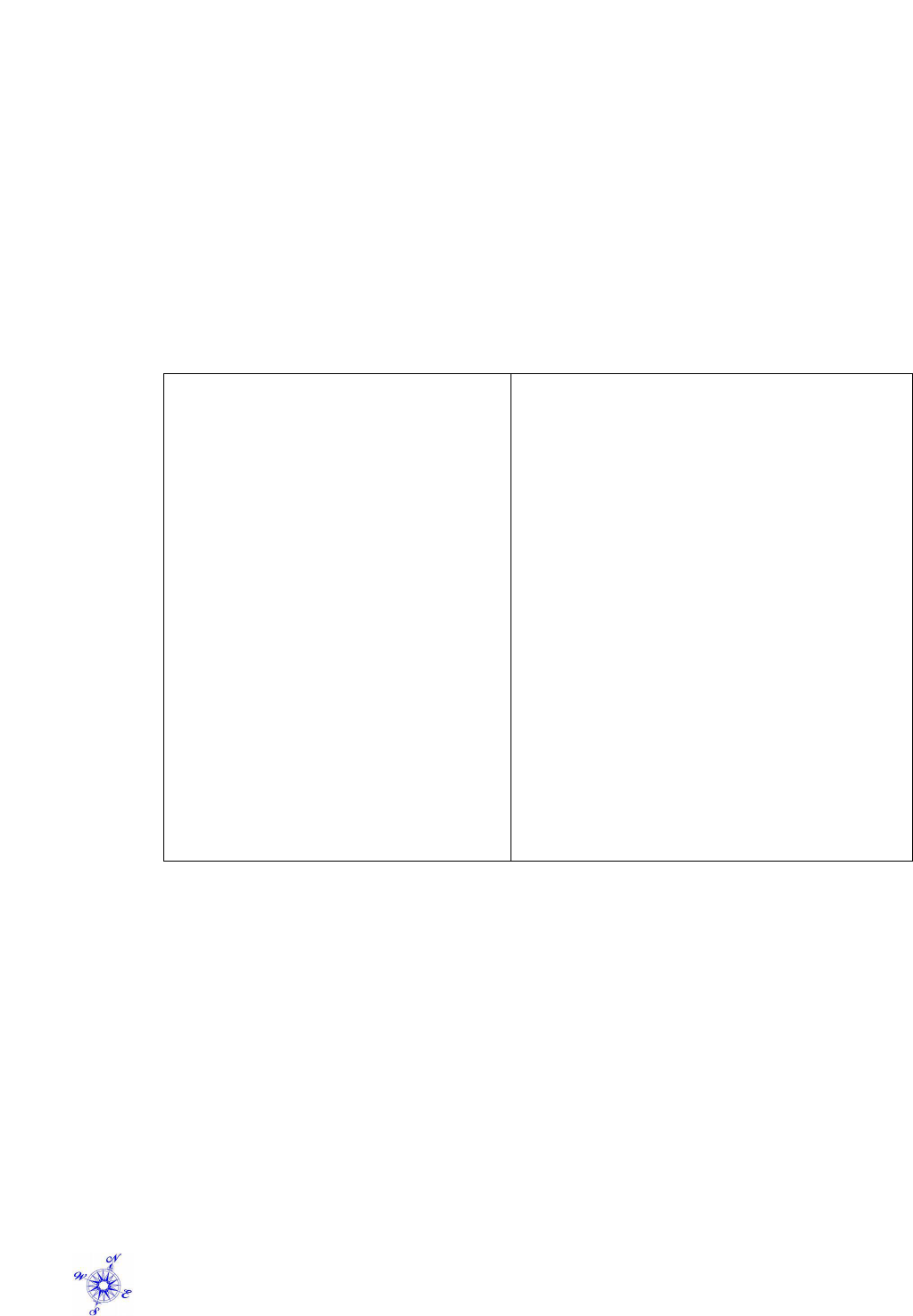
ELECTIVES
The liberal arts programs at NCC require 64 credits, including electives. The number of elective credits required
depends on your major (AA or AS) and how you fulfill your other requirements.
▪ Any credit-level course can be counted as a general elective.
▪ If you have completed the requirements for a specific attribute category and take additional courses or credits
above the minimum required within that category, they will be counted as elective credits.
▪ If a course does not fit into any required attribute category, it can only be counted toward electives.
Courses in the subjects listed in the table below are electives only, with some exceptions. *
*Some courses in the subjects marked with an asterisk may be used to satisfy requirements other than electives.
Check course attributes in the MyNCC Portal.
Go to STEP 5 on page 28
Accounting (ACC)
Administrative Business Technology (ABT)
Allied Health Sciences (AHS)*
Business (BUS)
Civil Engineering Technology (CET)
Computer Processing (CMP)
Computer Repair Tech (CRT)
Computer Science (CSC)*
Criminal Justice (CRJ)
Culinary Arts (CUL)
Education (EDU)*
Electrical Engineering Tech (ELT)
Engineering Science (ENS)
Fashion Design (FSD)
Fashion Buying & Merchandising (FBM)
Fire Science (FRS)
Green Sustainable Design (GSD)
Health Education (HED)*
Health Information Technology (HIT)
Healthcare Administration (HCA)
Hospitality Business (HTL)
Human Services (HMS)
Information Technology (ITE)
Interior Design (INT)
International Field Training (IWS)
Legal Studies (LAW)*
Marketing (MKT)
Medical Assistant (CMA)
NCC College Experience (NCC)
Nutrition (NTR)*
Physical Education (PED) - non-activity classes
Physical Sciences (SCI)* - SCI 141 is an elective, NOT
a non-lab science
Retailing (RET)
Security Administration (PSA)
Student Personnel Services (SPS)
Telecommunications Technology (TCT)
27

There are many variables that may affect your Master Academic Plan (MAP). The need for developmental
coursework and your commitment to academics, among other factors, must be considered if you are to
choose a realistic timeline for achieving your goal.
On the next page, you will be asked to evaluate these variables and select a timeline that you think is
reasonable for you. Keep in mind that circumstances can change, which may require you to modify your
MAP in the future.
CREATING YOUR MAP: STEP 5
Choosing a Realistic Timeline for
Achieving Your Goal
28
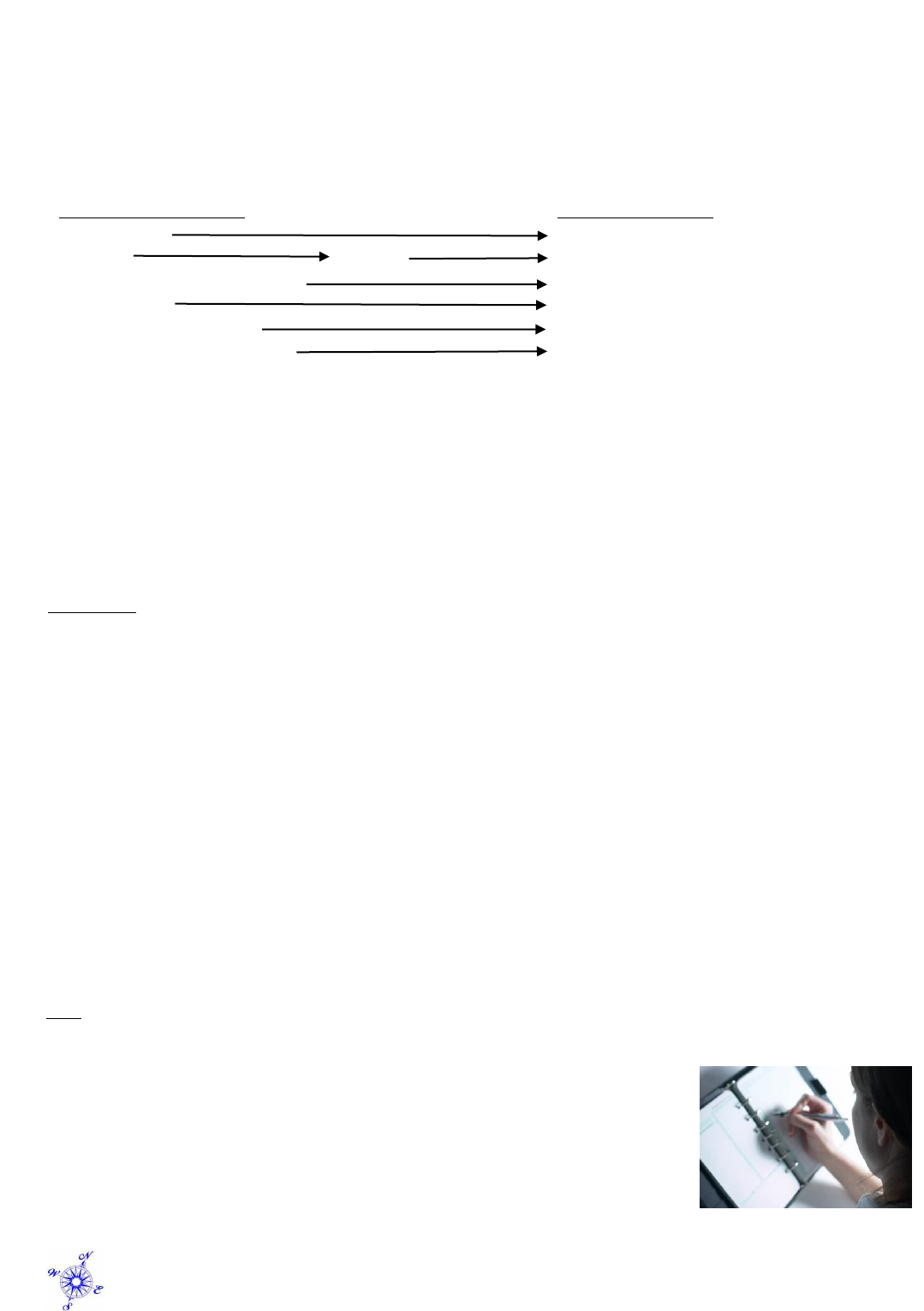
Required Developmental Coursework
Placement in developmental courses is based upon the results of your placement tests and indicates a need for
preparatory work prior to enrolling in certain college-level courses. Although no credit is earned for these courses,
they will require the same time and effort as comparable credit-bearing courses. Therefore, your MAP must
accommodate these classes.
Circle below the developmental courses you are required to take in your first term*
*If you circle 2 or more developmental courses, you must also enroll in NCC 101 (see page 40). Note: this is not required for ESL students.
ENG 001/101: Accelerated Learning Program (ALP) combines developmental ENG 001 with credit-level course ENG101. Courses must be
taken together.
RDG 002: Students must register for a “Gateway Pair,” which combines developmental RDG 002 with a credit-level course in a discipline.
COM 030: ESL students must complete COM 103 or COM 201 (ESL sections only), to satisfy this requirement.
MAT 003: This intensive course integrates arithmetic and algebra to prepare students for STEM programs.
MAT 013: This intensive course integrates arithmetic and quantitative literacy to prepare students for NON-STEM programs.
MAT 002: This course is intended for STEM programs. Students pursuing STEM should continue to the MAT 109/Pre-Calculus track.
MAT 012: This course is intended for NON-STEM programs. Upon completion, students can register for MAT 100, 101, 102, 114, 118.
IMPORTANT: See Appendix III on page 47 for additional information about developmental requirements and related concerns.
Factors Affecting Academics
To create a realistic MAP, give thought to the following factors that may significantly influence the amount of
coursework you can successfully complete each term. Consider that educational experts recommend that, for each
credit of enrolled coursework, you should allow two hours per week for work done outside the classroom, such as
reading, studying and completing assignments.
➢ COMMITMENT: Based on your academic history, is it realistic to enroll in five academic subjects in a single term?
Yes_____ No_____
➢ EMPLOYMENT: Will you be working while attending school? Yes_____ No_____
If yes, how many hours per week? _____
Do you feel that your work responsibilities will have a significant impact on the time you have available for academics?
Yes_____ No_____
➢ SOCIAL FACTORS: Are you responsible for children, siblings, parents or others? Yes_____ No_____
Do you feel that your social life or commitment to extracurricular activities will have a significant impact on the time you
have available for academics? Yes_____ No_____
Note: You must be registered for 12 or more credits/credit equivalents to be considered a full-time student (see page 47 in
Appendix III for credit equivalents of developmental courses.)
CHOOSING A REALISTIC TIMELINE FOR ACHIEVING YOUR GOAL
After exploring the requirements for your degree and thinking about the variables
that may affect your progress, choose a realistic timeline for achieving your goals:
____ Complete degree in four terms
____ Complete degree in two years, including summer and winter terms
____ Complete the degree in more than two years, using a personalized timeline
Note: Circumstances may require that you modify your MAP in the future.
Developmental Courses
Credit-level Courses
ENG 001/101
ENG 102 or ENG 103
RDG 001
ENG 030 (ESL) or ENG 001 (ESL)
RDG 002
RDG 101 or other credit-level course
ENG 100
RDG 030 (ESL)
RDG 101 or other credit-level course
COM 030 (ESL Placement)
COM 101 or other credit-level course
MAT 003 or 013 or 002 or 012
Credit-level math course, by advisement
Note: The sequence should be continued in the following term.
29
Go to STEP 6 on page 30

Now that you know your degree requirements, have selected courses that interest you
and have determined a realistic timeline for achieving your goal, it is time to complete
your Degree Tracker and create your Master Academic Plan (MAP).
To complete the Degree Tracker and MAP for the Liberal Arts Associate in Science (AS)
degree, turn to pages 31 and 32.
To complete the Degree Tracker and MAP for the Liberal Arts Associate in Arts (AA)
degree, turn to pages 33 and 34.
CREATING YOUR MAP: STEP 6
Degree Tracker and MAP
30
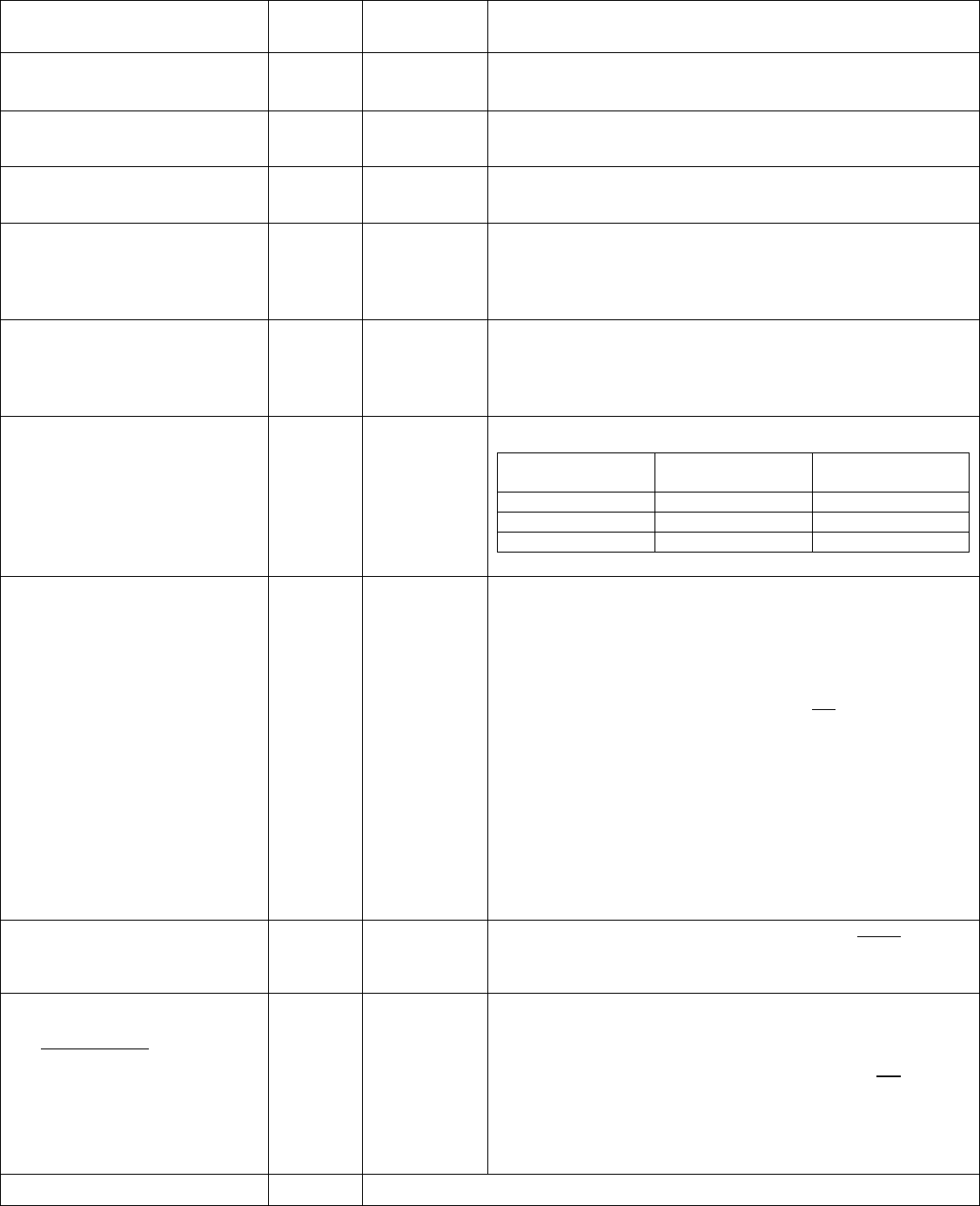
AS DEGREE TRACKER
You can use Schedule Builder or the Registration Information link in the MyNCC Portal to find courses with the appropriate attribute type for
each requirement. Only courses actually offered in a given term will be displayed. For helpful hints about using the MyNCC Portal, see
APPENDIX II on page 43. Use the chart below to list the specific courses you have selected to complete each requirement. After completing
the tracker, create your MAP on page 32.
COURSE REQUIREMENTS
MINIMUM
CREDITS
REQUIRED
SELECTED
COURSES
COMMENTS
ENGLISH COMPOSITION
6
ENG 100 or 101
and
ENG 102 or 103
▪ Placement results determine eligibility for ENG 100 or ENG 101
▪ Select your preference of ENG 102 or 103
▪ Eligible students may take Honors ENG 108 and 109 instead
HUMANITIES
6
__________
__________
▪ A course will fulfill this requirement if one of its attributes is
HUMANITIES
SOCIAL AND BEHAVIORAL
SCIENCE
6
__________
__________
▪ A course will fulfill this requirement if one of its attributes is SOCIAL
AND BEHAVIORAL SCIENCE
MATHEMATICS
8
__________
__________
▪ Complete one of the following sequences, based on results of
Advanced Algebra and Functions (AAF) test or completion of pre-
requisites:
➢ MAT 122 and 123
➢ MAT 111 and 122 or 117 and 122
SCIENCE SEQUENCE
8
__________
__________
▪ Complete one of the following sequences to satisfy this requirement:
➢ AHS 131 - 132
➢ BIO 109 - 110
➢ CHE 151 - 152
➢ PHY 101 - 102 or PHY 122 - 123 or PHY 151 - 152
SCIENCE/MATHEMATICS
ELECTIVES
14
__________
__________
__________
__________
__________
__________
▪ Complete additional courses from any of the math and science courses
listed above and/or below (EXCEPT MAT 111 or 117):
AST 101, 102
ENV 101, 102, 103,
104
SCI 200
BIO 200 and higher
GLY 101, 102, 104
MAT 131
CHE 201 and higher
MET 101
MAT 200 and higher
CLI 101
PHY 200 and higher
CSC 120
▪ Credits in excess of 14 will be applied to the ELECTIVES category
OTHER LIBERAL ARTS
Fine and Performing Arts Attribute
(Note: One- and/or two-credit courses
maybe combined to total 3 credits)
Literature Attribute
Communication Arts Attribute
Global Awareness and Non-
Western Cultures Attribute
Pluralism and Diversity Attribute
Western Heritage Attribute
12
____________
____________
____________
____________
____________
____________
▪ Complete a minimum of 12 credits, with at least 4 different attribute
types, to satisfy this area. If more than 12 credits are completed, the
additional credits will be applied to the ELECTIVES area below
▪ No course may be used to satisfy more than one attribute category in
the OTHER LIBERAL ARTS area. However, a course may satisfy a
requirement in the OTHER LIBERAL ARTS area and another requirement
above, if it has both attributes. Although the course may satisfy two
requirements (i.e. “double-counts”), it only earns credit once. This
credit deficit must be made up with additional ELECTIVE credit. See
COMMENTS under ELECTIVES category below
▪ Courses will fulfill each of these requirements if they have the
corresponding attribute types of: FINE AND PERFORMING ARTS,
LITERATURE, COMMUNICATION ARTS, GLOBAL AWARENESS AND NON-
WESTERN CULTURES, PLURALISM AND DIVERSITY, WESTERN HERITAGE
PHYSICAL EDUCATION
2
________________
________________
_______________
_______________
▪ Any combination of 0.5-credit and/or 1-credit physical activity classes
may be used to fulfill this requirement
▪ A course will fulfill the Physical Education activity requirement if one of
its attributes is PHYSICAL EDUCATION
ELECTIVES
IMPORTANT NOTE:
▪ Any credit-level course can be
used as an elective
▪ Certain courses can ONLY be
used as electives - see page 27
2 - 14
_____________
_____________
_____________
_____________
_____________
_____________
_____________
_____________
▪ Credits earned above the minimum in any of the above requirement
areas count as ELECTIVE credits
▪ At least 2 ELECTIVE credits are required. However, choosing courses
that satisfy both an OTHER LIBERAL ARTS requirement and another
requirement will necessitate taking 5, 8, 11 or 14 elective credits,
depending on how many courses “double-count”
▪ If pre-requisites are needed before taking required Math/Science
courses, they count as electives. Ex. MAT 109, CHE 107
TOTAL CREDITS REQUIRED
64
NOTE: AT LEAST 33 OF THE 64 CREDITS MUST BE EARNED AT NCC
31
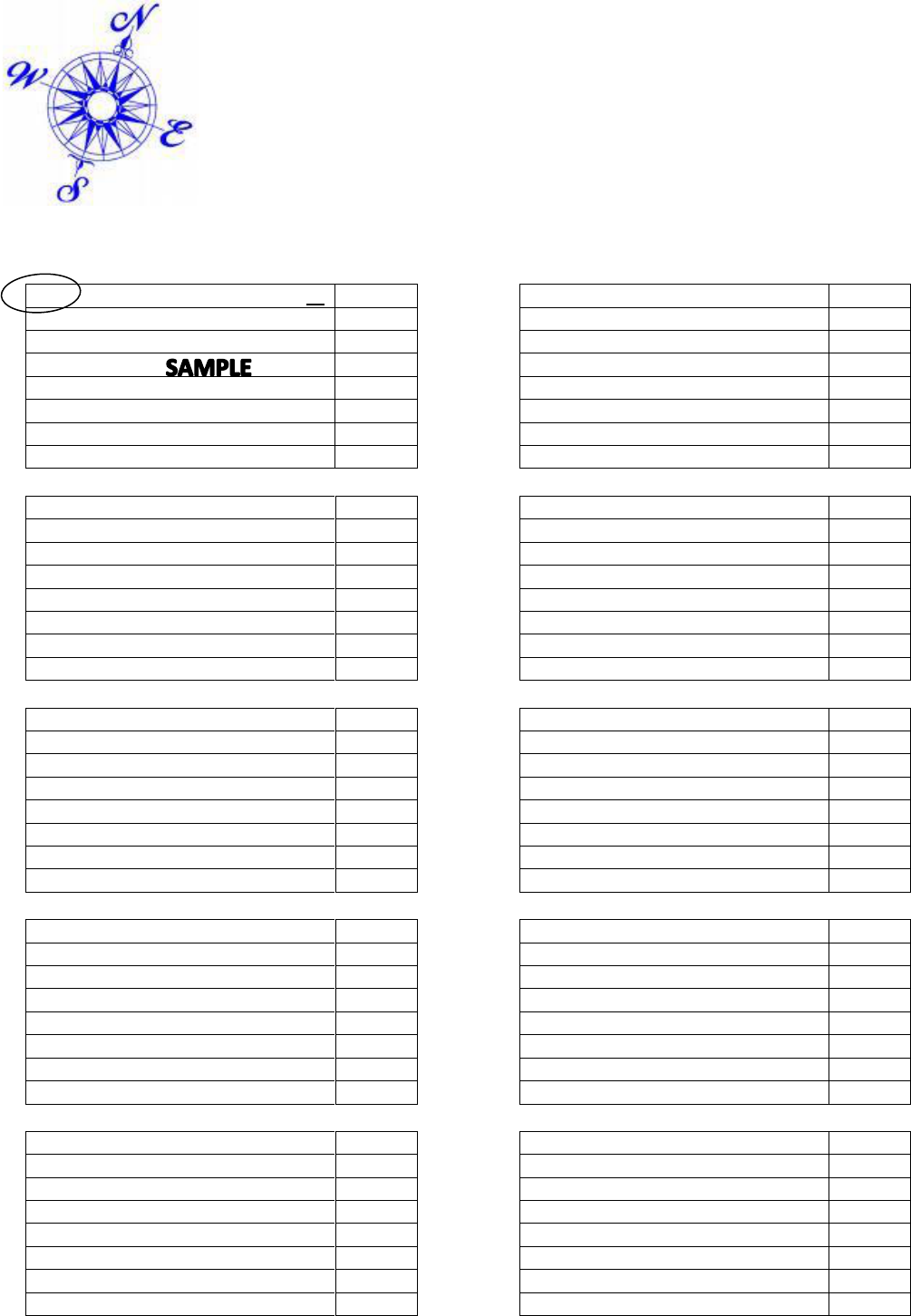
YOUR Master Academic Plan (MAP) – AS Degree
Based on the timeline you chose on page 29, and using the courses you selected for
your AS Degree Tracker on page 31, construct your MAP by completing one grid below for
each term you plan to attend. Be sure to include any required developmental courses.
Consultation with an academic advisor may be helpful when constructing your MAP.
➢ Circle the term and fill in the year represented by each individual grid.
➢ List the courses/requirements you plan to complete that term. You may
take a maximum of one course during a winter term and no more than
17 credits each fall, spring or summer term.
➢ This MAP is a modifiable document. Circumstances can change and may
necessitate adjusting your timeline and/or course selections.
FALL WINTER SPRING SUMMER 2020
CREDITS
ENG 101
3
ART 111
3
BIO 109
4
PSY 203
3
MAT 111
4
TOTAL
17
FALL WINTER SPRING SUMMER 20___
CREDITS
TOTAL
FALL WINTER SPRING SUMMER 20___
CREDITS
TOTAL
FALL WINTER SPRING SUMMER 20___
CREDITS
TOTAL
FALL WINTER SPRING SUMMER 20___
CREDITS
TOTAL
FALL WINTER SPRING SUMMER 20___
CREDITS
TOTAL
FALL WINTER SPRING SUMMER 20___
CREDITS
TOTAL
FALL WINTER SPRING SUMMER 20___
CREDITS
TOTAL
FALL WINTER SPRING SUMMER 20___
CREDITS
TOTAL
FALL WINTER SPRING SUMMER 20___
CREDITS
TOTAL
32

AA DEGREE TRACKER
You can use the Schedule Builder or Registration Information link in the MyNCC Portal to find courses with the appropriate attribute type for
each requirement. Only courses actually offered in a given term will be displayed. For helpful hints about using the MyNCC Portal, see
APPENDIX II on page 43. Use the chart below to list the specific courses you have selected to complete each requirement. After completing
the tracker, create your MAP on page 34.
COURSE REQUIREMENTS
MINIMUM
CREDITS
REQUIRED
SELECTED
COURSES
COMMENTS
ENGLISH COMPOSITION
LANGUAGE ARTS
Literature (3 cr)
Communication Arts (3 cr)
6
6
ENG 100 or 101
and
ENG 102 or 103
___________
___________
▪ Placement results determine eligibility for ENG 100 or ENG 101
▪ Select your preference of ENG 102 or 103
▪ Eligible students may take Honors ENG 108 and 109 instead
▪ A course will fulfill this requirement if one of its attributes is
LITERATURE
▪ A course will fulfill this requirement if one of its attributes is
COMMUNICATION ARTS
HUMANITIES
Note: One- and/or two-credit
courses may be combined to
total 3 credits of HUMANITIES or
FINE AND PERFORMING ARTS
9
___________
___________
___________
(Fine and
Performing Arts)
▪ Humanities courses must be selected from at least two different
humanities departments
▪ A course will fulfill this requirement if one of its attributes is
HUMANITIES
▪ You may take no more than 3 credits in English and no more than
3 credits in Communications to satisfy this category
▪ At least 3 credits must be in the FINE AND PERFORMING ARTS
category. A course will fulfill this requirement if one of its attributes is
FINE AND PERFORMING ARTS
SCIENCE
Lab Science (4 cr)
Lab Science (4 cr) OR
Non-Lab Science (3 cr)
7
___________
___________
▪ Credits in excess of 7 will be applied to the ELECTIVES category
▪ A course will fulfill this requirement if one of its attributes is LAB
SCIENCE
▪ A course will fulfill this requirement if one of its attributes is LAB
SCIENCE or NON-LAB SCIENCE
MATHEMATICS
Math (3-4 cr)
Math (3-4 cr) OR
Computer Science (3-4 cr)
6
___________
___________
▪ Credits in excess of 6 will be applied to the ELECTIVES category
▪ A course will fulfill this requirement if one of its attributes is
MATHEMATICS
▪ Only ONE course may be in Computer Science. It must be selected
from CSC 104, 120 or 130 only
SOCIAL AND BEHAVIORAL
SCIENCE
12
___________
___________
___________
___________
(History)
▪ Social Science courses must be selected from at least three different
social science departments
▪ A course will fulfill this requirement if one of its attributes is SOCIAL
AND BEHAVIORAL SCIENCES
▪ At least one course must be in history
PHYSICAL EDUCATION
2
______________
______________
______________
______________
▪ Any combination of 0.5-credit and/or 1-credit physical activity classes
may be used to fulfill this requirement
▪ A course will fulfill the Physical Education activity requirement if one
of its attributes is PHYSICAL EDUCATION
CULTURE AND DIVERSITY
IMPORTANT NOTE: A course that
satisfies this requirement may also
satisfy another requirement above, if
it has both attributes. Although the
course may satisfy two requirements
(i.e. “double-counts”), it only earns
credit once. This credit deficit must be
made up with additional elective
credit (see COMMENTS under
ELECTIVES category below).
6
___________
___________
▪ Complete two different courses with two different attributes from
the choices below:
□ Global Awareness and Non-Western Cultures Attribute
□ Pluralism and Diversity Attribute
□ Western Heritage Attribute
A course will meet a Culture and Diversity requirement if one of its
attributes is GLOBAL AWARE AND NON-WEST, PLURALISM AND
DIVERSITY or WESTERN HERITAGE
ELECTIVES
IMPORTANT NOTE:
▪ Any credit-level course can be
used as an elective
▪ Certain courses can ONLY be
used as electives - see page 27
10 - 16
___________
___________
___________
___________
___________
___________
▪ Credits earned above the minimum in any of the above requirement
areas count as ELECTIVE credits
▪ At least 10 ELECTIVE credits are required. However, choosing courses
that satisfy both a CULTURE AND DIVERSITY requirement and another
requirement will necessitate taking 13 or 16 credits, depending on
how many courses “double-count”
TOTAL CREDITS REQUIRED
64
NOTE: AT LEAST 33 OF THE 64 CREDITS MUST BE EARNED AT NCC
33
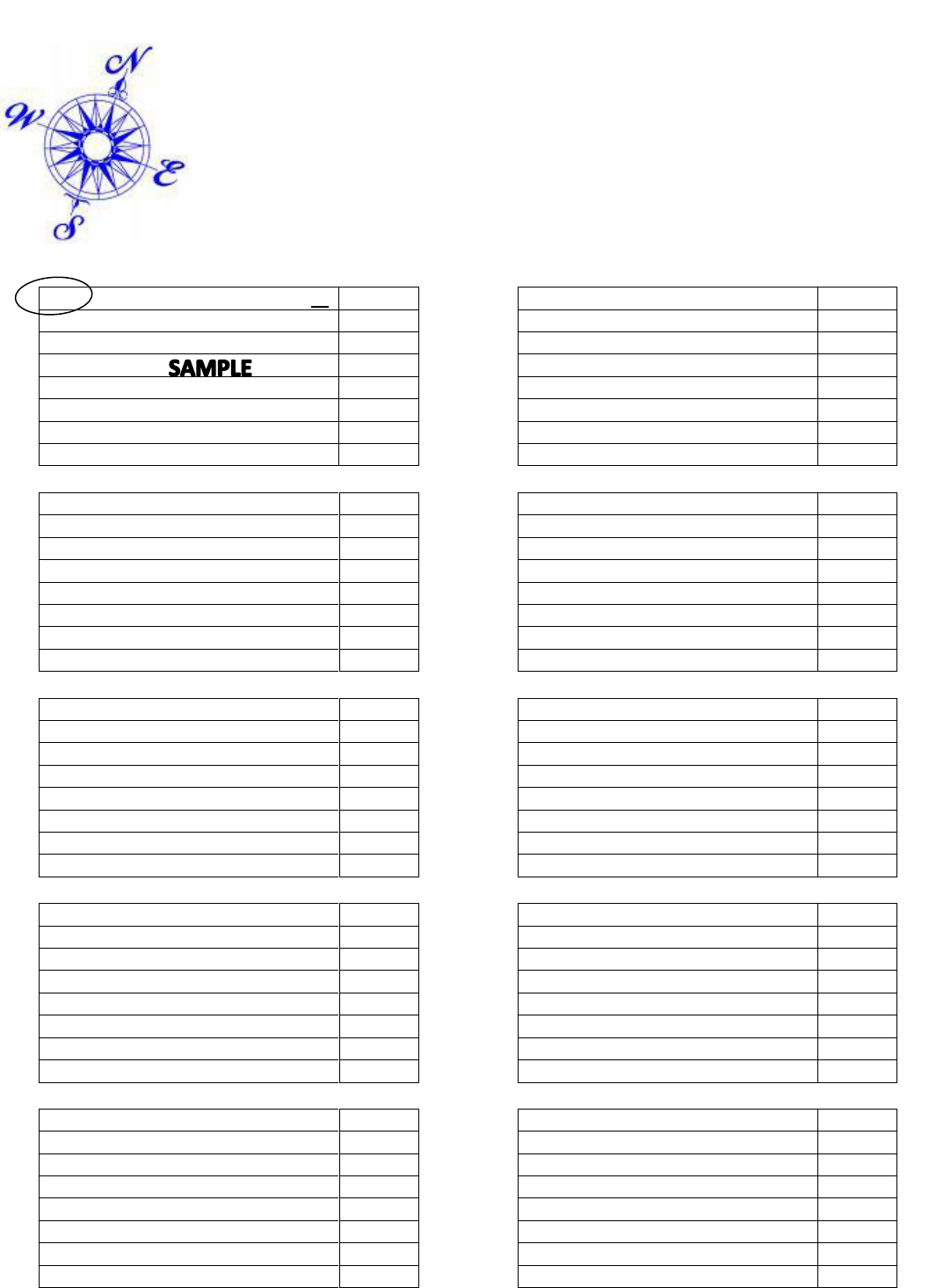
YOUR Master Academic Plan (MAP) – AA Degree
Based on the timeline you chose on page 29, and using the courses you selected for
your AA Degree Tracker on page 33, construct your MAP by completing one grid below for
each term you plan to attend. Be sure to include any required developmental courses.
Consultation with an academic advisor may be helpful when constructing your MAP.
➢ Circle the term and fill in the year represented by each individual grid.
➢ List the courses/requirements you plan to complete that term. You may
take a maximum of one course during a winter term and no more than
17 credits each fall, spring or summer term.
➢ This MAP is a modifiable document. Circumstances can change and may
necessitate adjusting your timeline and/or course selections.
FALL WINTER SPRING SUMMER 2020
CREDITS
ENG 101
3
ART 111
3
GLY 101
4
SOC 201
3
MAT 101
3
TOTAL
16
FALL WINTER SPRING SUMMER 20___
CREDITS
TOTAL
FALL WINTER SPRING SUMMER 20___
CREDITS
TOTAL
FALL WINTER SPRING SUMMER 20___
CREDITS
TOTAL
FALL WINTER SPRING SUMMER 20___
CREDITS
TOTAL
FALL WINTER SPRING SUMMER 20___
CREDITS
TOTAL
FALL WINTER SPRING SUMMER 20___
CREDITS
TOTAL
FALL WINTER SPRING SUMMER 20___
CREDITS
TOTAL
FALL WINTER SPRING SUMMER 20___
CREDITS
TOTAL
FALL WINTER SPRING SUMMER 20___
CREDITS
TOTAL
34

35
This page intentionally left blank

Appendix I: Glossary of Terms – page 38
Appendix II: MyNCC Portal Helpful Hints – page 43
Appendix III: Developmental Requirements and Restrictions – page 47
Appendix IV: Directory of Campus Resources – page 49
Appendix V: Campus Map – page 52
APPENDICES
36

This page intentionally left blank
37

APPENDIX I
GLOSSARY OF TERMS
AAF (Advanced Algebra and Functions) Test - required for a student who wishes to enroll in Pre-Calculus (MAT 111) or
Calculus (MAT 112/122), but has not completed the appropriate pre-requisite course (MAT 109 or 111);
recommended only if student has achieved the required math background through prior study (i.e., Algebra and
Trigonometry background for a student who wishes to enroll in MAT 111 and Pre-Calculus background for a student
who wishes to enroll in MAT 112 or 122); it is the student’s responsibility to request the AAF through the Placement
Testing Office in the Student Services Center
Academic Advisor - a professional who helps you understand your degree requirements and how to select appropriate
courses to fulfill them, helps you develop strategies for academic success and assists you in long-range academic
planning
Academic Probation - restricts a student to part-time study (11.5 credits or less) if GPA remains low after one term on
Academic Warning (see below); see college catalog in MyNCC Portal for specific minimum GPA criteria
Academic Standing - determined by the quality of a student’s academic performance as indicated by grade point
average (GPA); standings include: Good Standing, max. 17 credits; Academic Warning, max. 14 credits; Academic
Probation, max. 11.5 credits; Academic Dismissal
Academic Warning - restricts a student to 14 credits due to low GPA in the previous term (see college catalog in
MyNCC Portal for specific minimum GPA criteria); if low GPA persists, see Academic Probation
Associate in Arts (AA) in Liberal Arts - a degree with an English, social science and humanities foundation for students
transferring to upper-division study in areas such as English, foreign languages, allied health sciences, history, music,
theatre, philosophy, psychology and sociology, among others
Associate in Science (AS) in Liberal Arts - a degree with a math and science foundation for students transferring to
upper-division study in areas such as biology, chemistry, mathematics, physical sciences, physics, engineering and
computer science, among others
Attribute - a characteristic of a course that enables it to fulfill a specific requirement (ex. Communication Arts, Fine
and Performing Arts, Western Heritage)
Blackboard - a web-based learning management system that can be used in any course to enhance the learning
experience; access via the MyNCC Portal by clicking the NCC Online icon in your LaunchPad
Change of Program - form which must be completed to change major; requires academic advisor’s signature for liberal
arts majors; requires department chairperson’s signature for majors other than liberal arts; some programs
(Ex. Nursing, Radiologic Technology, among others) have competitive admissions and require an application and/or
screening process - consult specific departments for application information and deadline dates
Class Schedule - the days and times your courses meet in a particular term
CLEP (College Level Examination Program) - a national, computer-based testing program designed to help students
earn credit for college-level learning accomplished through non-traditional study or on-the-job training; credit is
awarded at NCC for certain subjects in which the student has earned an established minimum grade on the CLEP test;
administered through the Office of Lifelong Learning for a fee
38

College Catalog - found in the MyNCC Portal; students are responsible for reading the rules and regulations of the
college described in the catalog; outlines the student’s academic and financial responsibilities and liabilities; contains
information about academic departments and programs of study as well as course descriptions
Co-requisite - a course which must be taken at the same time as another course
Credit - a numerical value assigned to a course; a minimum number of credits must be completed to earn a degree (64
for the liberal arts AA and AS degrees); credits are not equal to the number of hours spent in class (ex. a 3-credit
English course meets for 2 ½ hours per week while a 3-credit studio art class may meet for 4 hours or more per week)
Credit Equivalent - a numerical value assigned to a non-credit, developmental course; no college credit is earned for
the course but the course requires the same amount of work as a credit-bearing course; credit equivalents count
towards full-time study for tuition, financial aid and health/dental insurance purposes, if applicable (ex. RDG 002 is a
non-credit course but carries 3 credit equivalents – see page 47)
CRN - Course Reference Number; a five-digit number used to identify a specific section of a specific course in the Add
or Drop Classes or Look Up Classes screens in the MyNCC Portal
Degree Evaluation - a tool that evaluates your progress towards completing your degree; found in the My Records
folder in the MyNCC Portal LAUNCHPAD
Developmental Course - a non-credit (see Credit Equivalent) math, reading or English course that prepares a student
for college-level work; requirement based on placement test results (see Placement Tests); student should enroll in
any required developmental course beginning in the first term of enrollment and should continue with the course
sequence in subsequent terms until each course is satisfied; completed developmental courses are graded
S (Satisfactory) or U (Unsatisfactory) and do not affect GPA; if student stops attending a developmental course, a
grade of UU (Unofficial Withdrawal, which does not affect GPA) will be assigned at term’s end.
Discipline - a branch of instruction or learning; a subject area (ex. the disciplines of history and philosophy)
Distance Learning - also called Distance Education; a planned teaching/learning experience in which the teacher and
student are separated by physical distance and/or time; instruction and content is delivered via the web. See Online
Course, page 41, and Distance Education, page 9
Dropping Courses - disenrolling from a course within the first 3 weeks of school (tuition refund period); may be done
online via the Registration Information menu in the MyNCC Portal; no faculty permission required; student will
receive a partial refund (see Refund Period, page 41) if dropping the course results in part-time status (less than 12
credits/credit-equivalents)
Dual-listed Courses - the same course that is jointly offered by two different academic departments; student may
enroll for course under either course designation (ex. HIS 176 and AFR 140)
DSST Exams - nationally recognized, computer-based testing program designed to help students earn credit for
college-level learning accomplished through non-traditional study or on-the-job training; credit is awarded at NCC for
certain subjects in which the student has earned an established minimum grade on the test; administered through the
Office of Lifelong Learning for a fee
Educational Counselor - a counselor who works with at-risk students who require special attention to succeed
academically
39

Educational Opportunity Program - provides higher education opportunities to students who are academically
underprepared and have limited financial resources.
Electives - courses that do not fulfill specific attribute categories but are needed to reach the 64 credits required for
the AA and AS liberal arts degrees; elective courses allow the student to explore areas outside of the liberal arts (ex.
Business, Criminal Justice) or pursue more in-depth study in a liberal arts area of interest
GED® Program - See High School Equivalency (HSE) Program
Grade Point Average (GPA) - a number which reflects a student’s academic achievement; see Grading System and
Grade Point Average in the college catalog in the MyNCC Portal
High School Equivalency (HSE) Program - an alternative program for students who have not graduated from high
school nor obtained the High School Equivalency Diploma via testing; students earn 24 college credits in specific areas
to earn the HSE; credits earned in the program count towards the Associate’s Degree
Hybrid Course - a course that requires a combination of classroom instruction and online learning
Incomplete Grade (INC) - may be assigned to a student who has not satisfied all the academic requirements for a
course but can reasonably be expected to complete the work; assigned at the discretion of the instructor; student is
responsible for following up with the professor; missing work must be completed by the end of the following 15 week
term or the INC grade will convert to an F (Failure)
Liberal Arts - a broad term for the academic areas of social sciences, natural sciences, mathematics, fine arts,
literature and the humanities
Life Experience Credit - credit granted by some academic departments for knowledge obtained through practical, real-
world experience; assessment of eligibility for life experience credit is done by the chairperson of the corresponding
academic department according to departmental criteria
Matriculated - enrolled in a college or university as a degree-seeking student; requires high school transcript or proof
of High School Equivalency (HSE) and official transcripts from prior college work, as well as completion of placement
testing, unless exempt
MyNCC Portal - NCC’s gateway to a variety of web-based applications and services used by students, faculty, and staff;
includes links to your most commonly used applications such as email and the online student information and
registration system, which enables students to view their academic and financial records and register independently,
unless restricted
NCC 101 – a one-credit seminar course designed to help you develop the skills, knowledge and insights necessary to
make the most of your college experience. Course is required for any new or transfer student who has placed into two
or more developmental courses.
NCC ID # - often called your N number (because it begins with N); referred to as USER ID for logging into the MyNCC
Portal; should be memorized because it is needed for all college business
40

Non-Degree - student’s status when attending classes without matriculating (i.e., not enrolled in a degree program);
appropriate for students only needing to take a few courses, students who apply to NCC without fulfilling the
requirements for matriculation or students enrolled in the 24-credit HSE program (see page 40); student is prevented
from enrolling in courses that require placement testing as a prerequisite, unless exempt from testing or placement
tests are taken; prevented from enrolling in courses that have a specific course prerequisite, unless student can
provide evidence of prerequisite completion to the department chairperson; non-degree students are not eligible for
financial aid
Online Course - a course conducted solely on the web, using Blackboard; enrolled students access the course via the
MyNCC Portal
Placement Tests - standardized tests in English, math and reading administered to all incoming matriculating students,
unless exempt; determines eligibility for credit-level work in English, math or reading, as well as other courses; see
AAF (Advanced Algebra & Functions) Test or Developmental Course; see Appendix III on page 47 for more information
Prerequisite Course - a course that must be completed before taking another course
Refund Period - the first 3 weeks of a fall or spring term; if a course is dropped during this time and enrollment drops
below full-time (less than 12 credits/credit-equivalents), student is entitled to a partial refund; percentage of refund
decreases each week; check bill and/or Bursar for specific dates and percentages (Note: the refund periods are shorter
for winter and summer terms)
Residency Requirement - the minimum number of credits of required coursework (33 credits for degrees and 15
credits for certificates) that must be completed at NCC in order to obtain a degree or certificate; transfer credit or
credit earned from AP, IB or CLEP/DSST exams or from Life Experience is NOT considered credit completed in
residence
Schedule Builder - online tool that simplifies creating your course schedule (see page 43).
Semester - a fifteen-week period of time when classes are in session during fall (September through December) and
spring (January through May); referred to as “Term” in the MyNCC Portal
Summer Session - sessions offered late May through August; may enroll for a maximum of 17 credits for summer;
referred to as “Term” in the MyNCC Portal
SUNY GER (SUNY General Education Requirements) - courses that must be completed to earn a Bachelor’s degree at
any SUNY school; selecting courses at NCC that have a SUNY GER Attribute will satisfy the corresponding requirement
for a Bachelor’s degree if transferring to a SUNY school; see page 10
SUNY Seamless Transfer - enables a student to transfer to a SUNY four-year school as a Junior, on target for
completing a Bachelor’s degree with two additional years of study; accomplished by completing the SUNY GER
Requirements (see above) and the appropriate SUNY Transfer Path courses for the student’s selected major; see
page 10
SUNY Transfer Paths - a designated combination of lower-division courses that a student should complete at NCC in
preparation for transfer to a SUNY four-year school in order to achieve a seamless transfer toward a selected major;
see page 10
Term - see Semester, Summer Session or Winterim
41

Transfer Credit - credit earned for coursework completed elsewhere; may be awarded as a result of a) equivalent
college-level courses completed in high school or at another college with a minimum grade of C earned; b) earning
minimum required scores in acceptable AP, IB or CLEP/DSST exams; or c) credit for work completed during military
service or police/fire academy attendance; must submit official transcripts and/or exam results to Admissions prior to
the student’s first term, or to the Registrar thereafter, to earn transfer credit
Unofficial Withdrawal - students who stop attending a credit-level class without following the official withdrawal
policy (see Withdrawal) will be assigned a grade of UW at term’s end; a UW grade is counted as an F in the GPA
calculation
Waitlist - allows students to place their names in line for a seat in a closed course, should one become available; if
someone drops the class and a seat becomes available, the first student on the list is notified via NCC email and has 24
hours to accept the seat or it will be offered to the next student on the waitlist; not available for all courses; see
page 45
Winterim - a three-week session offered between fall and spring terms; classes meet five days per week; only one
course may be attempted; limited course offerings; listed as “Term” in the MyNCC Portal
Withdrawal - disenrolling from a class after the tuition refund period has ended (from the beginning of the fourth
week until the end of the ninth week of the fall or spring terms - check academic calendar for exact dates); professor
may not deny a withdrawal request during this “automatic withdrawal” period and must sign the In Person Drop/Add
Form which the student must submit to the Registrar’s Office; a grade of W (which has no effect on the GPA) will be
assigned; since some professors may allow students to withdraw beyond the “automatic withdrawal” period, consult
with your professor; (Note: the withdrawal periods are shorter for winter and summer terms.)
42

APPENDIX II
MyNCC PORTAL HELPFUL HINTS
FINDING AND REGISTERING FOR COURSES USING “SCHEDULE BUILDER”
This helpful tool simplifies the process of creating your schedule. In your MyNCC Portal LAUNCHPAD, click
on Schedule Builder
In order to obtain the best possible results, be sure to do the following:
• Click on the correct Term.
• Be sure you select the desired Instructional Methods and Sessions. Unless you click on Change to
narrow your options, the computer will create schedules using every type of course (classroom,
online, study abroad, etc.) and during all sessions (Day, Evening, Weekend, etc.)
• Click on +Add Course to add each course desired. You may search by Subject, Course Attribute or
Instructor, if desired. Be sure to read course descriptions if you have multiple options to choose
from.
• Click on +Add Breaks. For example, if you want day classes but prefer not to attend before or after a
certain hour, you can build in a break for the time period you do not want classes.
• Click Generate Schedules. If no schedules can be created with your choices, make adjustments to
the breaks, selected courses (when you have more than one option) or sessions, until some
schedules can be generated. If too many are generated, you can refine your preferences instead.
• Review your possible options until you find your best choice.
• Click on Send to Shopping Cart
• Be sure to finalize the registration when you are redirected to your portal!
Schedule Builder works best when there are still many open classes to choose from. As it gets closer to the
start of the semester, you may find it easier to register using the traditional Add or Drop Classes method
(see the next section below). In addition, once you are registered, you should use this method, rather than
Schedule Builder, to make changes to your schedule.
FINDING AND REGISTERING FOR COURSES IN THE “REGISTRATION INFORMATION” MENU
In your MyNCC Portal LAUNCHPAD, click on Registration Information click on Look Up Classes or Add
or Drop Classes highlight the desired term in the drop down menu click Submit click
on Advanced Search. Highlight a Subject and include a course number in the box, if known. Specify
additional parameters (ex. Session, Attribute) if desired. Review your results so you can select the course
sections you wish to register for.
43

To make the best use of the information that appears on these screens, you should be familiar with the
following information:
• Key:
o C in the Select column indicates that the course section is closed
o in the Select column indicates there are seats available in this course section, unless
there is a number in the WL Act column (see Waitlist, page 45).
o CRN Column: Each section of each course has a unique Course Reference Number (CRN).
o Subj Column: The abbreviation for the subject area for each course
o Crse Column: The 3-digit number for each course. Classes that start with “0” are
developmental and do not earn credit but have “credit-equivalents” (see page 39 & 47).
o Sec Column: The Sections usually coincide with the letter designations for certain days and
times on the NCC schedule grid (see Helpful Tools at www.ncc.edu/advisement)
o Cmp Column: The N indicates that NCC is the campus
o Cred Column: Refers to the number of credits you will earn if you complete the course with a
grade of “D” or higher, unless it is a developmental course beginning with “0” (see page 39 &
47).
o Days Column:
▪ M = Monday
▪ T = Tuesday
▪ W = Wednesday
▪ R = Thursday
▪ F = Friday
▪ S = Saturday
▪ U = Sunday
o Time Column: Be sure to check whether your classes meet during AM or PM hours.
o Cap Column: How many students may register for this section
o Act Column: How many students are actively registered
o Rem Column: How many seats are remaining
o WL Columns: See Waitlist, page 45.
o XL Columns: refer to classes that are dual-listed, which means the same course is offered
under two different subjects/course numbers (Ex. AFR 152/MUS 207; see page 39). If a
course is dual-listed, the XL Cap reflects the total number of students who can enroll under
both subject/course numbers combined.
o Instructor Column: Assigned Instructor; TBA (To Be Announced) means the instructor has
not been assigned yet
o Date Column: Gives the date range for class meetings; most classes meet for the full term
but some are 5-weeks or a half-semester in length.
o Location Column: where the class meets
o Attribute Column: See page 38 and Step 4, page 16.
• Course Descriptions:
o Click on the hyperlinked course reference number (CRN) for the course section. On the new
page, click on View Catalog Entry to view pre- or co-requisites and the course description.
44
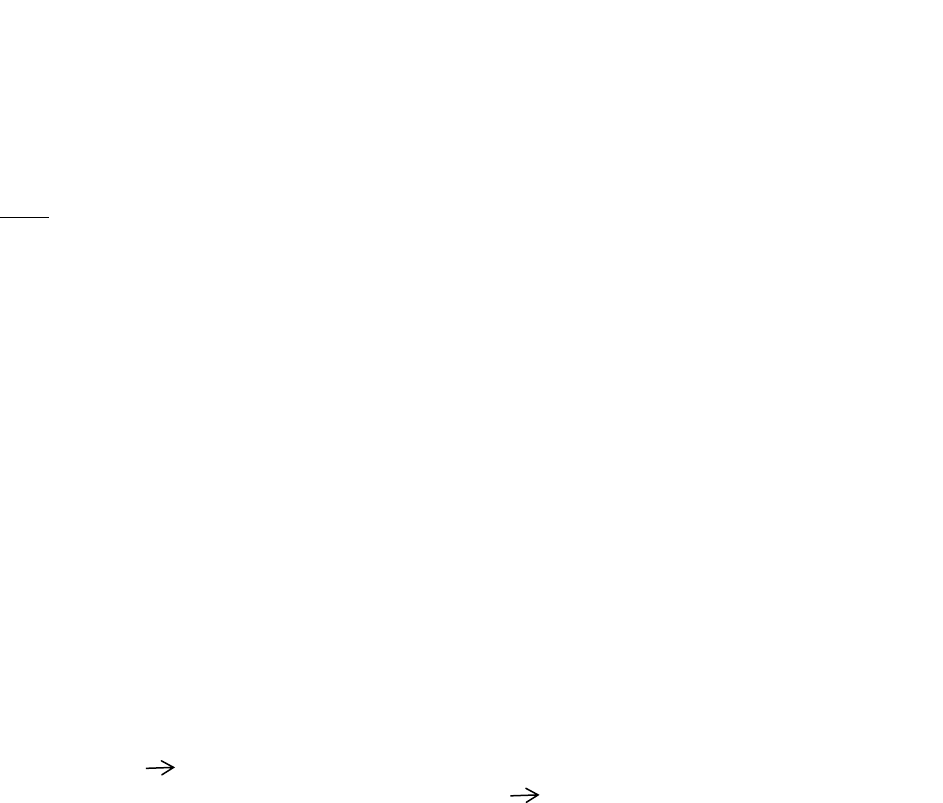
• Restricted or other Special Sections:
o RED TEXT appears immediately above each course section that has some type of restriction
or information you should know. For example, it may be an online or hybrid course, reserved
for a special population (like Honors or certain majors) or part of a Learning Community.
Note: This RED TEXT only refers to the single course section immediately below it, not the
remainder of courses on the page!
• To Register:
o Click on an open box and hit the Enter key on keyboard or click Register at the bottom of the
screen
▪ Note: If there is already a waitlist for the section, you will only be given the option to
put yourself on the waitlist; you will NOT be able to register for the course! See the
next section below.
• Waitlist:
o If the waitlist is available for a course, numbers will appear under the WL columns.
▪ WL Cap = # students that can waitlist
▪ WL Act = # students on waitlist
▪ WL Rem = # waitlist seats remaining
o You can add yourself to the waitlist by clicking on the open box if one appears. If no open
box is available, enter the CRN into a box on the worksheet at the bottom of the Add or Drop
Classes screen click on Submit Changes. With either method, you must use the drop-
down arrow under Action and highlight Wait Listed Click on Submit Changes again.
o If a registered student drops the class, the first student on the waitlist is offered the seat via
his/her NCC email account and has only 24 hours from the time the email was sent to accept
it. If the student does not enroll, s/he is removed from the waitlist and the next student on
the waitlist is offered the seat, and so on.
o Several weeks before the semester begins, the waitlist is turned off and all names are
deleted; when this occurs, watch the MyNCC Portal for seats that may still become available
on a first-come, first-served basis.
o When using the waitlist, you should:
▪ Register for a full schedule of courses rather than relying on obtaining a seat from the
waitlist to complete your schedule; use the waitlist as a backup plan to improve your
schedule.
▪ Waitlist for the sections of the class with fewer students already on the waitlist.
▪ Check your NCC email regularly so you don’t miss your opportunity to add the class if
a seat is offered to you.
▪ Drop yourself from the waitlist if you are no longer interested in obtaining a seat in
the class.
45
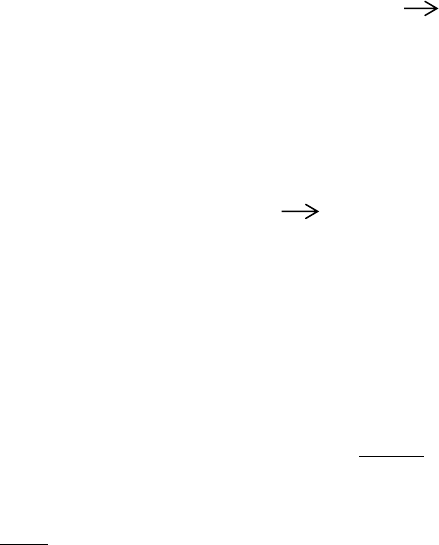
HOW TO ACCESS YOUR SCHEDULE
To view your schedule in the MyNCC Portal:
Use Concise Student Schedule
Go to MyNCC Portal’s LAUNCHPAD, click on Registration Information click on Concise Student
Schedule.
USING THE DEGREE EVALUATION
On your MyNCC Portal LAUNCHPAD, click on My Records Click on Degree Evaluation
Your Degree Evaluation displays your liberal arts degree requirements, completed courses and in-progress
courses so you can evaluate your progress toward degree completion. If you plan to transfer to a 4-year
SUNY school after NCC, you can also view how your courses count toward the SUNY General Education
Requirements (SUNY GER; see page 10). If you are considering changing majors, you can utilize the What If
Worksheet to evaluate how your completed and in-progress credits would apply to the new major.
It is highly recommended that you use the Degree Evaluation tool before registering for your courses each
semester or before meeting with an advisor to discuss your future plans.
Running a Degree Evaluation after registering will enable you to determine whether the courses you
selected are actually fulfilling the requirements you intended to complete. Your Degree Evaluation may not
update immediately after registering or making a change to your schedule. You may have to wait until the
next day for the Degree Evaluation to be accurate.
46
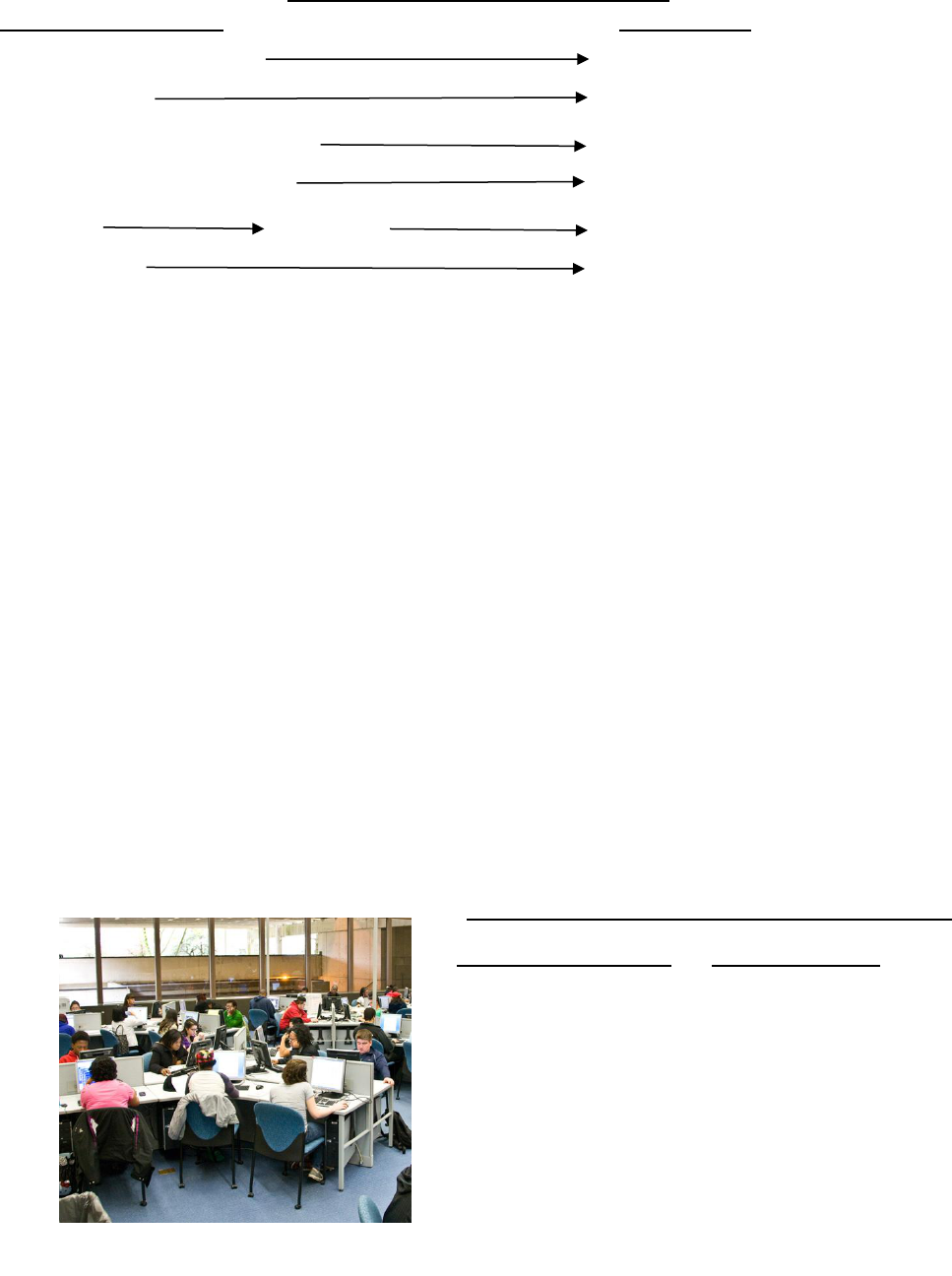
APPENDIX III
DEVELOPMENTAL REQUIREMENTS and RESTRICTIONS
Developmental courses are a condition of your acceptance and should be taken during your first
semester of attendance. If you place into two or more developmental courses (except ESL courses),
you must also enroll in NCC 101, a one credit Freshmen Seminar.
DEVELOPMENTAL COURSE SEQUENCES
Developmental Course Credit Course
COM 030 (ESL Placement) COM 101 or other credit-level course
ENG 001/101 ENG 102 or ENG 103
ENG 030 (ESL) or ENG 001 (ESL) ENG 100
MAT 003 or 013 or 002 or 012 Credit-level math course
RDG 001 RDG 002 RDG 101 or other credit-level course
RDG 030 (ESL) RDG 101 or other credit-level course
COM 030: ESL students must complete COM 103 or COM 201 (ESL sections only), to satisfy this requirement.
ENG 001/101: Accelerated Learning Program (ALP) combines developmental ENG 001 with credit-level course
ENG 101. Courses must be taken together.
MAT 003: This intensive course integrates arithmetic and algebra to prepare students for STEM programs.
MAT 013: This intensive course integrates arithmetic and quantitative literacy to prepare students for NON-STEM
programs.
MAT 002: This course is intended for STEM programs. Students pursuing STEM should continue to the MAT
109/Pre-Calculus track.
MAT 012: This course is intended for NON-STEM programs. Upon completion students can register for MAT 100,
101, 102, 114, 118.
RDG 002: Students must register for a “Gateway Pair,” which combines developmental RDG 002 with a credit-level
course in a discipline.
NON-CREDIT COURSES COUNT TOWARDS FULL-TIME ENROLLMENT
All developmental courses are non-credit but count as hours for full-time enrollment,
billing, financial aid and health/dental insurance purposes (if applicable). Example: ENG 001
is a non-credit course but is the equivalent of 3 credits.
Note: Students eligible for Excelsior Scholarship should consult with the Financial Aid Office.
CREDIT EQUIVALENTS FOR NON-CREDIT COURSES
Non-Credit (0) Course
Credit Equivalent
ENG 001
ENG 030
MAT 003 or 013
MAT 002 or 012
RDG 001 or 030
RDG 002
3
6
6
4.5
4
3
47
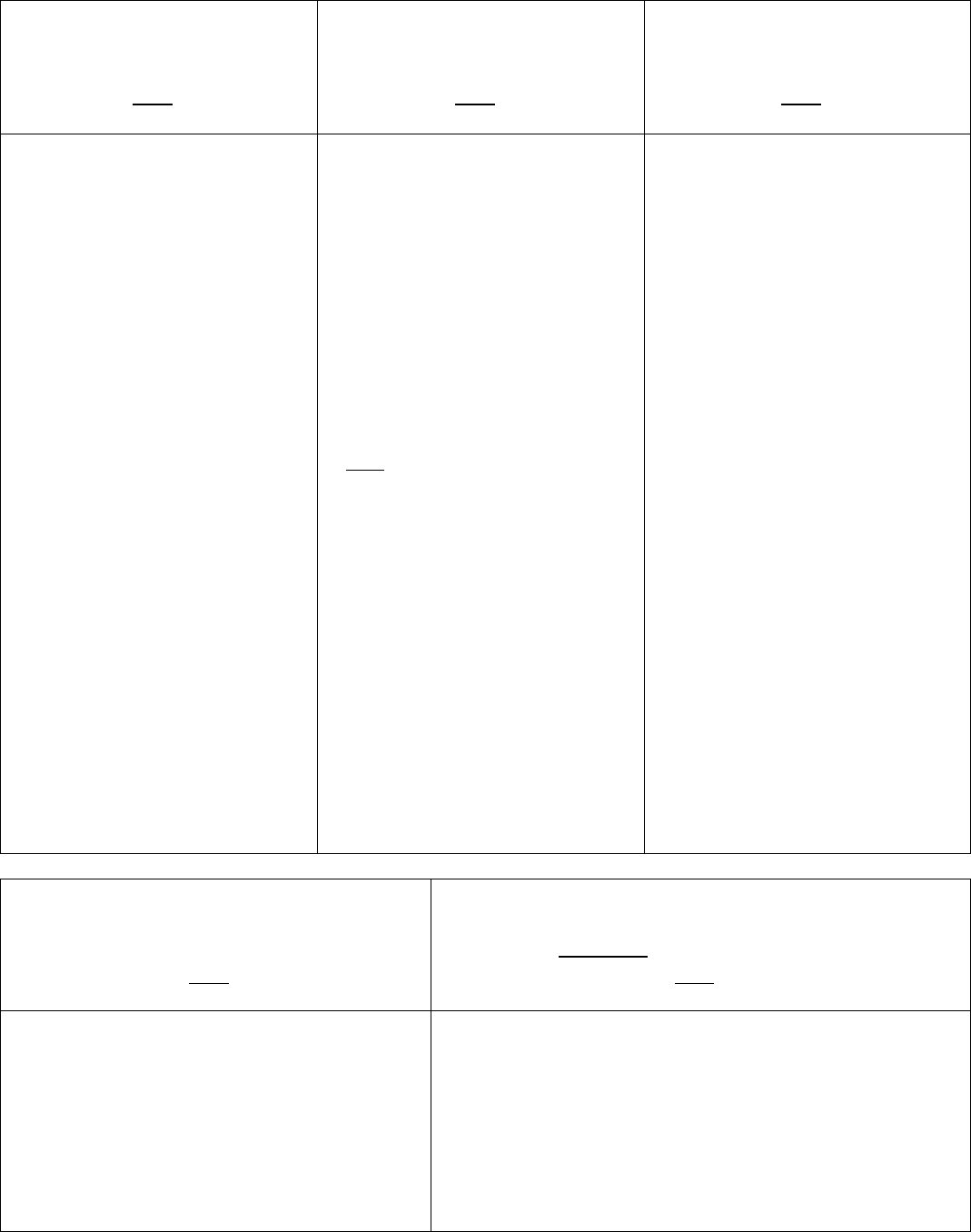
IF YOUR PLACEMENT IS
ENG 001 or ENG 030,
YOU MAY NOT ENROLL IN:
IF YOUR PLACEMENT IS
RDG 001,
YOU MAY NOT ENROLL IN:
IF YOUR PLACEMENT IS
RDG 002 or RDG 030,
YOU MAY NOT ENROLL IN:
AHS 131
ASL
AFR 170, 197
ART 100, 102, 103, 104, 124, 201,
202, 203
BIO 109
CHE
CMP
COM
CRJ
CSC
ENG (except ENG 001/101 ALP)
Foreign Languages
FRS
HIS 165, 250, 270
ITE
*MAT (except MAT 003, 013, 002, 012)
MDC 101, 102, 130
PHI
PHY (except PHY 120)
PSA
SCI 141
WST 107
EXCEPTION FOR ESL STUDENTS
ONLY: Credit MAT courses may be
taken concurrently with ESL English.
AHS 131
ASL
AFR 140, 143, 170, 197, 200
ART 100, 102, 103, 104, 124, 201,
202, 203
BIO 109
CHE
CMP
COM
CRJ
CSC
DAN 101
ENG 101
Note: Even if your placement is ENG 101,
you may not enroll in this course until
RDG 001 has been satisfied
Foreign Languages
FRS
GEO (except GEO 202)
HIS (except HIS 177, 221)
ITE
MAT (except MAT 003, 013, 002, 012)
MDC 101, 102, 130
PHI
PHY (except PHY 120)
POL
PSA
RDG (credit-level)
THR 100, 101, 103, 107, 201
WST 107
AHS 131
AFR 143, 170, 197
ART 100, 102, 103, 104, 124, 201,
202, 203
BIO 109
CHE
CRJ 230
DAN 101
Foreign Languages
GEO (except GEO 202)
HIS (except HIS 105, 106, 136, 140,
165, 176, 177, 178, 190, 219,
220, 221, 222, 234, 290)
PHI
PHY (except PHY 120)
POL (except 111)
RDG (credit-level)
THR 100, 101, 103, 107, 201
WST 107
IF YOUR PLACEMENT IS
MAT 003, 013, 002 OR 012,
YOU MAY NOT ENROLL IN:
IF YOUR PLACEMENT IS
ANY TWO REMEDIAL COURSES,
YOU MAY NOT ENROLL IN:
AHS 131
BIO 109
CHE
CMP
CSC
ECO 207, 208
ITE
MAT (credit-level)
PHY (except 120)
ACC 101
48

APPENDIX IV
DIRECTORY OF CAMPUS RESOURCES
Academic Advisement
Advisement for all liberal arts students
in good academic standing with one or
no remedial courses
Student Services Center
516-572-7436
Admissions
Applications and transfer credit
evaluations for new students
Student Services Center
516-572-7345
Bursar
In-person payments
Certificate of Residency forms
Student Services Center
516-572-7325
Career Counseling Center
Vocational Assessment
Information on careers
Career workshops and counseling
Building M, Room 14
516-572-7696
Center for Students with
Disabilities
Advisement and assistance for students
with documented disabilities
Building U
516-572-7241 TTY: 516-572-7617
Center for Educational and
Retention Counseling
Advisement for all students on
academic probation regardless of major
Learning Skills Workshops
Building M, Room 19
516-572-7141, Ext. 0 to make
appointment
Center for Service Learning
Resource for students and faculty
interested in civic engagement and
social responsibility
Student Services Center
516-572-9775
Child Care
The Children’s Greenhouse provides a
friendly and nurturing environment;
fees on a sliding scale
Children’s Greenhouse
Hospital Road
516-572-7614
College Level Examination
Program (CLEP & DSST)
Testing programs to earn college credit
Office of Workforce Development
356 East Road
516-572-9947
Continuing Education
Non-credit courses for enrichment and
standardized test preparation courses
355 East Road
516-572-7472
Dean of Students
Disciplinary actions, excused and
medical withdrawals, emergency loans,
academic dismissals
CCB 312
516-572-7376
Distance Education
Administration of online courses
350 Avenue U
516-572-7883
Educational Opportunity Program
(EOP)
Provides higher education opportunities
to students who are academically
underprepared and have limited
financial resources
Tower 5
th
floor
516-572-0607
Financial Aid Office
Financial Aid and scholarship
information; Federal Work Study
program
Student Services Center
516-572-7396
49
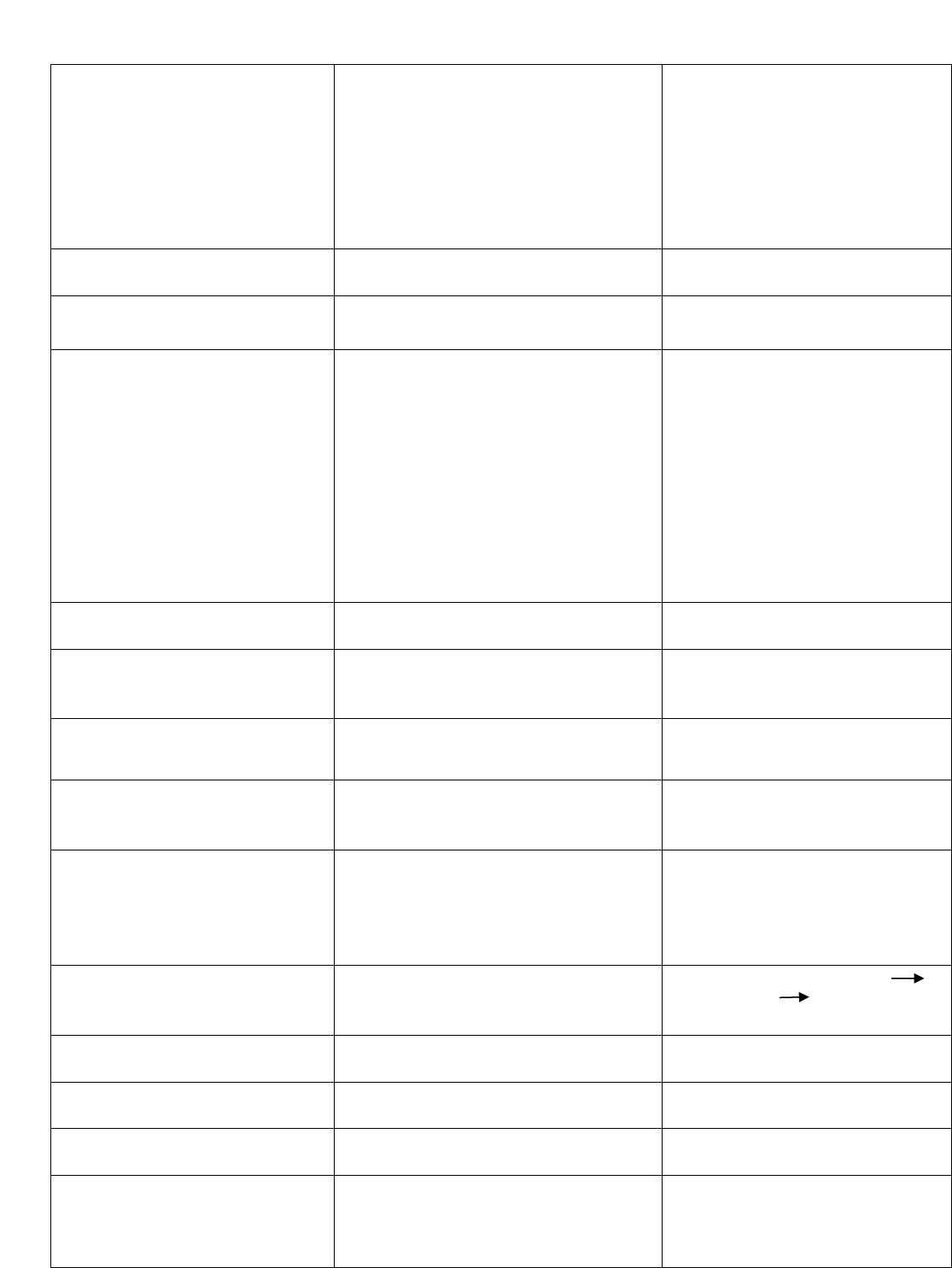
Health Office
First aid care, Physical Education
waivers, physicals for students,
counseling and referrals, health
insurance information, accident claim
forms
Collection of immunization forms ONLY
Health Office
Between Building U and Theater
516-572-7123 Fax: 516-572-9637
Student Services Center
Honors Program
Advisement for Honors students
Permission to enroll in Honors courses
Bradley Hall, Room 1
516-572-7194
International Education
International student concerns
F-1 Visas and Study Abroad
359 Hazelhurst Avenue
516-572-7053
Math, Computer Science and
Information Technology Help
Centers:
Math Center
Math Success Center
Computer Learning Center
Math Anxiety Center
Provides walk-in-help and tutoring
For students in credit math courses
For students in non-credit math courses
For students enrolled in CSC, CMP and
ITE courses
For students with math anxiety
B 130 516-572-7394
B 116 516-572-6878
B 225 516-572-7379
B 126 516-572-7383
MyNCC Portal Help Desk
Reset MyNCC Portal Password
Limited technical support
516-572-9980
Placement Testing
Scheduling and administration of
placement and AAF (Advanced Algebra
and Functions) tests
Student Services Center
516-572-7780
Psychological Counseling
Confidential psychological counseling
and referrals
Building M, Room 9
516-572-7698
Public Safety
Lost and found, requests for aid,
complaint reports
Public Safety Office
Emergency: 516-572-7111
Non-Emergency: 516-572-7100
Registrar
Registration, drop/add, submission of
withdrawal and change of program
forms, transfer credit evaluation for
continuing students, questions related
to student records and transcripts
Student Services Center
516-572-7355
Scholarships
Scholarship information and
applications
MyNCC Portal LAUNCHPAD
Get Involved Scholarship
Information
Student Activities
New student orientation, clubs, social,
cultural and recreational activities
CCB, Room 150
516-572-7148
Student Financial Services
Monetary issues
Student Services Center
516-572-7326
Student ID Cards
Obtain college photo ID after tuition bill
payment
Student Services Center
516-572-7501
Student Personnel Services
Academic advisement for liberal arts
students with two or more
developmental courses and/or on
academic warning
Building M, Room 11
516-572-7506
50
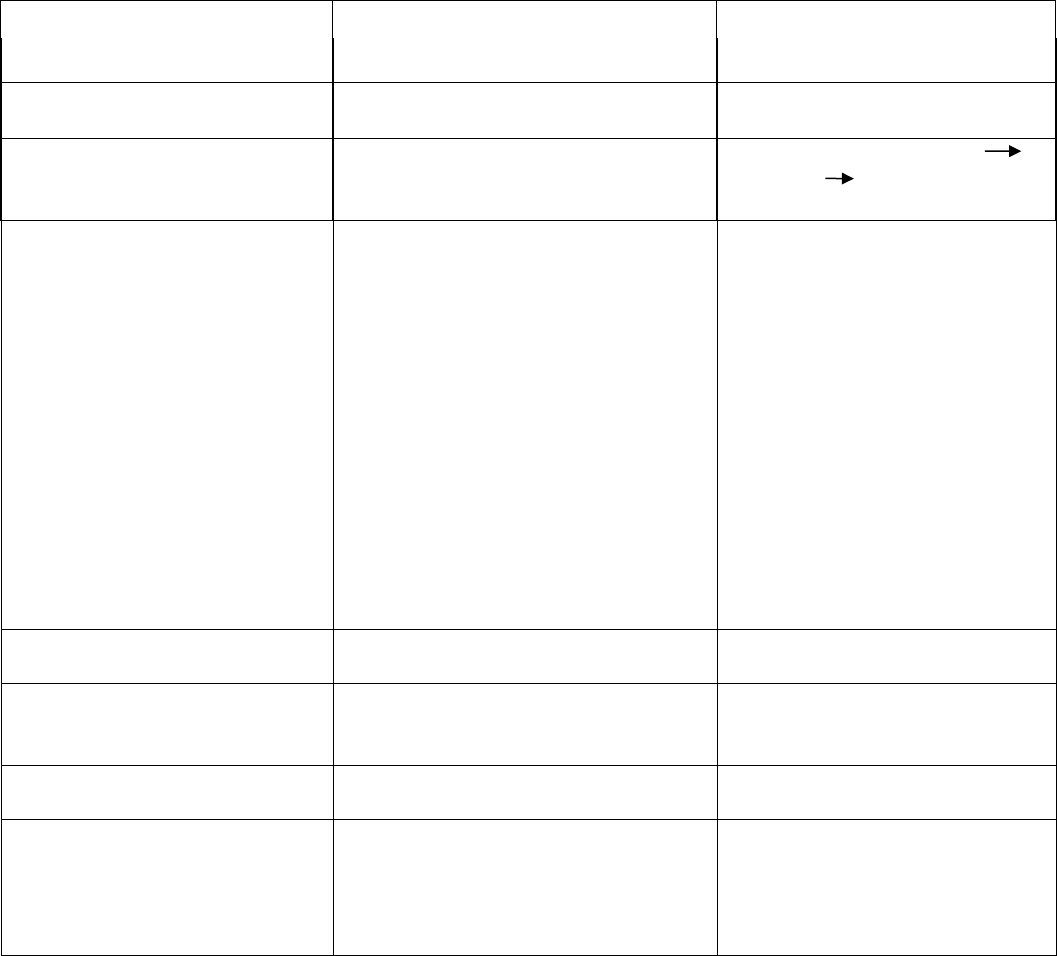
Student Professional
Development/Employer Services
Resume and job search assistance,
internships, volunteer and job
opportunities
Building M, Room 39
516-572-7132
Transfer Counseling
Information about transferring to other
colleges
Building M, Room 14
516-572-7696
Vehicle Registration
Obtain permit for campus parking after
tuition bill payment
MyNCC Portal LAUNCHPAD
MYSAFETY
Vehicle Registration
Veterans Services:
Center for Veteran’s Affairs
GI Bill Certifying Officials
Veteran’s Resource Facility
Assists veterans in obtaining
government educational benefits
Provides referrals to services that help
veterans transition to college
Questions concerning GI Bill; GI Bill
certification
Official location for Veterans’ Club;
designated space for meetings,
workshops, counseling sessions,
educational events and peer study
groups
Student Services Center
516-572-9775
Registrar’s Office,
Student Services Center
516-572-7368
365 Rice Circle
516-572-0570
Weekend College
Information for weekend students
355 East Road
516-572-7377
Women’s Resource Center
Programming, counseling, referral and
information on topics relevant to
women
Building M, Room 39W
516-572-7132
Workforce Development
Courses for career certifications
356 East Road
516-572-7487
Writing Center
Open to all students interested in
improving their writing skills in any
discipline
Bradley Hall Ballroom
516-572-7195
Library, L-233
516-572-3595
51
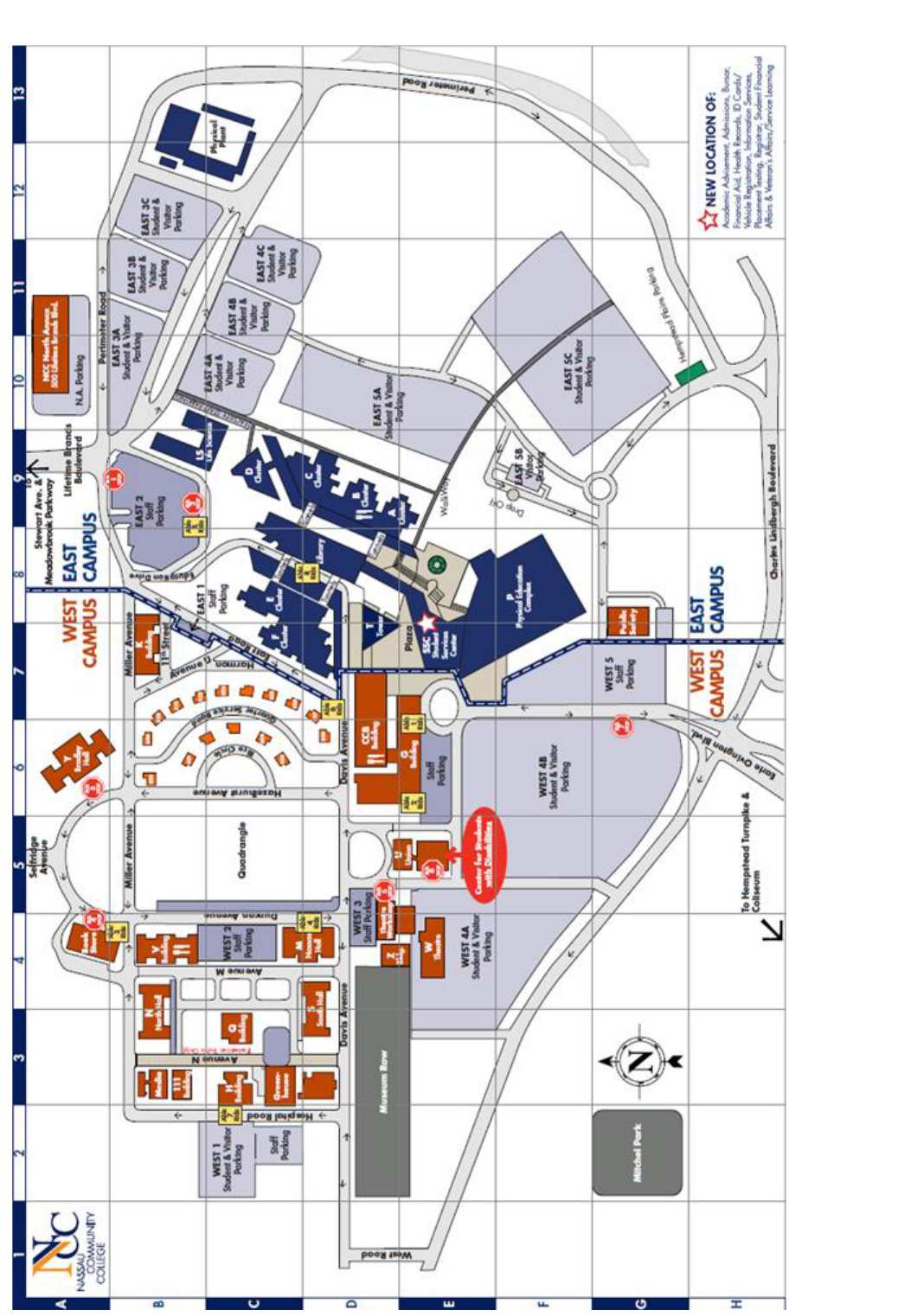
52
APPENDIX V
